THE EAGLE
Editor-In-Chief: Bella
Coombes
Graphic Design:

St John’s School Politics Magazine

Editor-In-Chief: Bella
Coombes
Graphic Design:

St John’s School Politics Magazine

With the threat of a TikTok ban, the largest shake-up of the British welfare system in a generation, and a J.D. Vance-shaped hole in US-Ukraine relations, spring has sprung upon us, bringing you The Eagle, Spring Term Edition. If I can say one thing so far about 2025, it has certainly been a year to 'Trump' all others.
While sitting in the sunny library reflecting on the political year so far, I am reminded of William Wordsworth's 'Lines Written in Early Spring' where he describes a peculiar "...mood when pleasant thoughts // Bring sad thoughts to the mind".
To me, this feeling is particularly striking as the hopeful days grow longer and the sun brighter, alongside an increasingly bleak and worrying political landscape. Seasonably, a notable focus of our Spring Edition is on the future, particularly our first chapter focusing on 'Leaders of Tomorrow'. This issue features a number of new writers, notably, Janusha G. of Roseberry School who shares a week of her work experience with Steve Reed MP, as she learns the demands of Westminster.
This growth period of Spring jarring with the dwindling of global community in politics recently, for me, is really epitomized by Wordsworth's poem. Global community - respect and discourse in the image of humanity - is vital. And while the overbearing feeling of it crumbling may seem depressing, we must find solace in our smaller communities, like one surrounding The Eagle.
In our 29th edition of the St. John’s School politics magazine, 29 contributors have helped present to you, gentle reader, what they deem the salient stories of politics through the respective lenses of 'Leaders of Tomorrow', 'Peace, Protest, and Conflict', and 'Beyond the Ballot'. This term I have been thrilled with not only the standard, but the passion of our writers, with many previous con-
tributors returning for our second issue. Being the inaugural Editor-in-Chief of The Eagle, it is worth mentioning to anyone eyeing-up my position the pocket of beauty that can be found in the blossoming of our writing community. Our returning writers are testament to the development of authentic narrative voices that provide the crackle and fizz to politics as written by youth voices. Will Logan, in particular, writes two engaging pieces located at either ends of the edition: a critique of a culture rooted in overconsumption, and a review of the Tate Britain's Photographing the 80s exhibition.
Throughout and particularly since the 80s, technology has served to diversify the way we look at the world by acting as a mouthpiece for our opinions and experiences. Now, we are seeing the pioneers of this technology: Musk, Bezos, Zuckerberg: further President Donald J. Trump's incessant distilling of culture into the binary.
However, the final chapter of this edition 'Beyond the Ballot' is an anthem to the endurance and vitality of culture. A stand-out review from Anna Cuckow critiques David Tennant's gritty portrayal of Shakespeare's Macbeth at the Donmar Warehouse with nuance, certainly making Cuckow one to watch. Sam Richards delves into the unpredictable mind of Kanye West, looking at his astounding political inversion from a progressive mouthpiece for change to a dangerous neo-Nazi ravaging the media.
As ever, I have been fortunate to work alongside my fantastic graphic designer who has helped bring this issue to you. Freddie Hayles has curated the magazine into a visual spectacle, creating spreads with animation and class. I am forever indebted to you, Freddie, for your time, work ethic, and patience throughout this term, and here's to the next issue!
I hope you thoroughly enjoy reading this issue as much as I have loved being part of its creation. Amidst the whirlwind of political and seasonal change this March, I hope you can find a moment of comfort and hope in the promising political voices of the future wrapped within these pages.

Bella Coombes Editor-in-Chief
This past year has witnessed a major change of hands in leadership, with recent allocations raising potent questions on the changing nature of power, and indeed to whom it is allocated. With tech geniuses infiltrating an increasingly oligarchic America, Jack Milton looks at Elon Musk’s turning-upside-down of the White House, tying neatly into Gwen Buckley’s investigation of JD Vance’s role in Trump’s rise to power, drawing on populist tactics using his seminal memoir, Hillbilly Elegy. As for the voters, Will Logan explores how our consumerist culture has morphed campaigning into something that banks on overconsumption to prevail. In yet another fiery debate, Sam Tredwell argues that leaders should have to take an IQ test, and with Trump committing himself to what he calls his Gazan ‘Riviera’, one is inclined to agree. However, Ellie Wain makes a strong challenge to Tredwell’s conviction, arguing that the proposed IQ tests would not come without an intoxicating dose of manipulation, contesting the binary idea of conventional leadership; strong intellect does not necessarily equate to strong leadership. So, what does constitute a good leader? Classicist Reuben Costard looks to the first Roman Emperor, Augustus, regarded as one of the most astute and cunning leaders of the BCs. Looking forward two thousand years, this chapter returns with another fantastic piece by Charlotte Clee, who I would back as an extremely likely leader of tomorrow, having had a stunning couple of months in the parliamentary world. Clee advocates the Labour Government’s implementation of 20% VAT on private schools in her interview with esteemed journalist and founder of the Local Schools Network, Melissa Benn. Readers will also enjoy a guest article by the fantastic Janusha G. of Roseberry School who shares her experience working in parliament with Steve Reed, MP for Streatham and Croydon North, learning what it takes to be a leader of tomorrow.
‘(Vice) President’ Graphite Sketch on paper - Luciana M-P

Gwen B
Not only does Vance influence Trump’s decisions and views, but he has worked his way into Trump’s inner circle.
The next president isn't who you think. On January 20th, the man who took office was not Donald Trump. But instead, a different version of Trump, heavily influenced by J.D. Vance. Vance strongly influences Trump from behind the scenes and has been a key reason for Trump's decision making. Although Trump stated in his inauguration speech, "We will not allow ourselves to be taken advantage of any longer," I believe otherwise. Vance's views on certain issues such as foreign policy, gun control, "wokeness", and many other of his opinions, which closely align with most republicans, are evident in his book Hillbilly Elegy. All his views are mainly in support of middle working-class Americans, mainly through his views on manufacturing jobs.
“Morally reprehensible” and a “total fraud”, are just some of the comments J.D. Vance has previously made about Trump. He even went as far as referring to him as “America’s Hitler”, claims Vance’s old college roommate, Josh McLaurin, allegedly happening only eight years ago in 2016. Since then, Vance seems to have come out of nowhere with immense support for Trump, which can only be because of a personal political ploy. In recent times, Vance has made comments such as “I actually think it’s a good thing when you see somebody and you were wrong about them; you ought to admit the mistake and admit you were wrong”, this being a very drastic change from his previous statements. J.D.
Vance isn’t just a policy wonk; he knows how to speak to the Trump base. “ “
Vance’s support for Trump rose ‘surprisingly’ at a similar time as Trump’s first successful election on the November 8th, 2016.
J.D. Vance has also, through his keen political placement and strategy, created an image for himself as a “man of the people”. One way he has done this is through his memoir, published in 2016, called “Hillbilly Elegy”. The book depicts him as a young, ‘hillbilly’, lower class citizen, when in reality, this is far from the truth. The book outlines J.D. Vance’s character, a portrait of a man obsessed with status. Therefore, perhaps it is no surprise at all his sudden change of heart over Donald Trump at the end of 2016. The comments Vance made were clearly overlooked by Trump, since in July of 2024, Vance was selected by Trump as his Vice President to be.
Do Americans Have a Favourable or Unfavourable Opinion of Donald Trump?
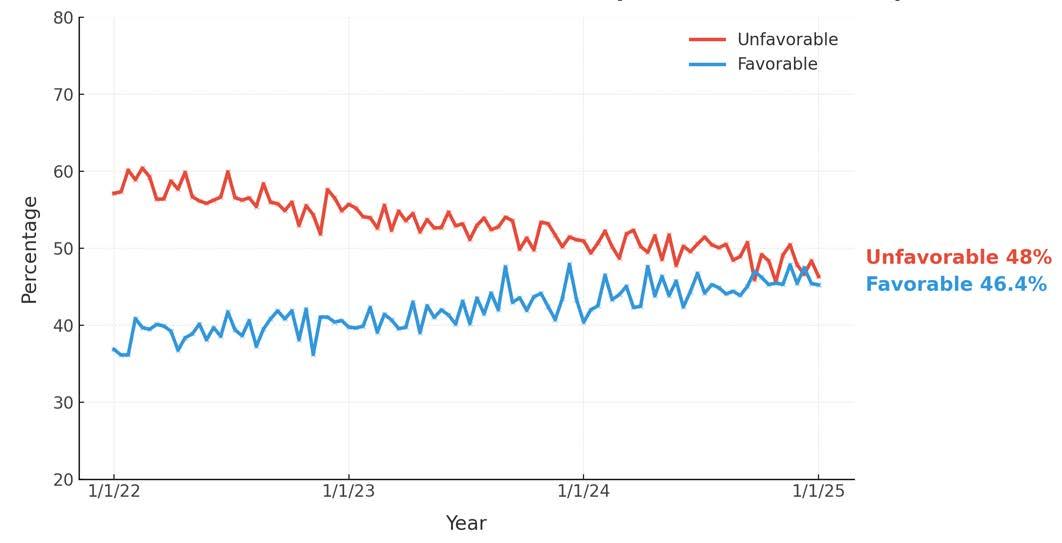
Vance, arguably, through his political understanding and intellect, can sufficiently work as a “behind the scenes advisor”, helping shape Trump’s own personal views. And not only does Vance influence Trump’s decisions and views, but he has worked his way into Trump’s inner circle, therefore able to shift not only Trump, but Trump’s colleagues and friends’ views. This ‘behind the scenes advising’ was clearly positive for Trump’s campaign, as shown in the stats below, with Trump’s popularity increasing after Vance was selected as Vice President.
In the past couple of years, the change between Vance and Trump’s relationship has developed quickly. This sudden shift in the relationship between the two has swiftly changed into a strong and close bond. What is striking about this companionship is the mutual respect they both hold for one another. A former Trump advisor who spoke anonymously stated that “Trump has always been a pragmatist” and “he knows Vance has the pulse of Middle America, particularly the part of the country that Trump needs to keep in his corner if he’s going to mount a successful campaign for 2024.
1984
Born in Middletown, Ohio
2000
Deploys to Iraq as an enlisted Marine
2013
Graduates from Yale Law School, starts corporate career
2014
Marries law school classmate, Usha Vance
2016
Publishes Hillbilly Elegy, moves from California back to Ohio
Criticizes Donald Trump as "reprehensible"
2019
Launches a venture capital firm with support from GOP donor, Peter Thiel
2021
Apologizes for past Trump criticism, claims 2020 election was fraudulent
2022
Wins US Senate seat with Trump's endorsement
2024
Announced as Donald Trump's running mate
Vance isn’t just a policy wonk; he knows how to speak to the Trump base”. This statement clearly demonstrates that not only does one of Trump’s colleagues believe Vance is helpful for Trump, but believes that Trump needs Vance in order to help “speak to the Trump base”.
This sudden shift was due to Vance’s strategic political positioning. Vance started out as US senator for Ohio, and by doing this, he presented himself as a good governing figure and demonstrated his ability to be a leader. It is possible that this decision to run as Ohio’s
senator was planned political positioning on Vance’s side, but that’s still up for debate. It is believed that he positioned himself as to connect further with Republican supporters and portray himself as a man who connects with Republican views and values by aligning himself with Trump’s populist values, positioning himself in a place of power, supposedly acting as the ‘man of the people’, increasing relatability, and gaining more support. Vance has also not been shy when it comes to speaking out and defending trump. He frequently defends him on
social media and in interviews, and he is also very keen on his new policies such as Trump’s “America First” policy.
Secondly, Vance has managed to strongly influence Trump on his policies and strategic direction. One key area has been foreign policy. Vance has pushed his beliefs that Trump should be more careful when dealing with Ukraine and China. This position of caution, while not being new to his brand of nationalism, has been acted on with more urgency and clarity since Vance emerged as a central figure. Vance has publicly stated that “we cannot continue sending endless amounts of American taxpayers’ dollars to Ukraine”, demonstrating his criticism of the ongoing US involvement in the Russia-Ukraine war which he made particularly evident in the meeting with Zelensky on Friday. Vance has also stated that “we need to focus on fixing our own country, not policing the world”. This belief has been echoed more and more in Trump’s newest speeches, signalling a shift in belief and tone, aligning more with Vance than ever before.
Vance has also shifted Trump’s view on bringing manufacturing jobs back to the United States, aligning with their isolationist polices. Vance, who is strongly for the idea, has previously stated “if you go back to Trump’s presidency, we had 12,000 factories that were built... We need to put American workers first, not corporate interests” and “That’s
the kind of policy Trump understands, and it’s the kind of policy that will win in 2024”, not only portraying Vance’s support but in turn, Trump’s. These remarks created no surprise when Vance suggested that Trump’s economic policies could be expanded to achieve stronger protections for American workers. “It’s going to happen, it’s going to happen very quickly, I will appoint the manufacturing ambassador,” said Trump.
Lastly, one of the most notable areas where Vance has deeply influenced the actions of the new US President was through views on cultural conservatism and anti-woke messaging. Vance has always positioned himself as an outspoken critic on the idea of “wokeness” and most left-wing cultural movements. This stance connected with many Republican party members, who have grown disillusioned by the concept of “crazy” woke liberals. Trump, who has previously focused on issues such as immigration and economic nationalism, and who has never been very involved in any ‘woke’ issues, has recently been adapting his rhetoric by using ‘anti-woke’ language. Trump’s repeated attacks on the left’s cultural agenda, particularly on issues involving transgender rights, critical race theory and the rise of “cancel culture” have clearly been influenced by Vance’s viewpoint. Trump is repeatedly echoing Vance’s beliefs and messages, portraying himself as a defender of ‘traditional American values’ against a
‘radical left-wing assault’.
Vance and Trump’s political alliance, with a long-term vision, is no accident. By Vance positioning himself as senator for Ohio, he opened himself up to key, influential Republican party members, and by being a strong defender of Trump, he has created a crucial bridge to the next generation of Republicans. Due to his ambitious nature, it would be plausible to believe his long-term goal is to one day run for National Office. Indeed, no Republican has ever won the presidency without winning Ohio. Republican Frank Luntz even said “Vance is shaping up to be the next big thing in Republican politics. He understands Trump’s appeal, but he also knows how to expand that appeal to new voters”. The relationship between Trump and Vance is not a friendship, it is a political alliance. Vance has already proven to be a master of social media, a great advantage for Trump, allowing him to extend the appeal of Republicanism online. This calculated placement cannot be a mistake; it is a strategically positioned plan that really makes us wonder if Vance is the leader of Republican tomorrow.
- Gwen B

In the 21st century, the relentless pursuit of material wealth has become a defining characteristic of everyday life.

society, the need for political leadership that challenges consumerist values and prioritises societal wellbeing has never been more urgent.
of overconsumption. Advertisers would sell more than a product; they would sell identities and lifestyles too. Over time, these marketing strategies have infiltrated almost every aspect of life, creating a culture where the worth of an individual is measured by their purchasing power and the brands they consume.
Consumerism – the belief that personal wellbeing and success are largely determined by materialistic goods –has reshaped us sociopolitically.
Whilst the promise of a better life through consumption is attractive, the reality is far more complex. The impact consumerism has on society goes beyond individual debt or environmental damage, it deepens social inequality, exploits marginalised communities, and influences political narratives. As we move forwards in
The roots of consumerism can be traced back to the postWorld War II economic boom. Production and advertising advanced, and mass media was born. This transformed how people viewed success and happiness. The standard was set: a higher quality of living could be achieved with the constant acquisition of new products.
With the rise of television, and later, the internet, consumerist messaging became hard to avoid. Advertising, in particular, played a crucial role in the normalisation
However, consumerism’s promise of prosperity is not equal. We have seen it intensify existing inequalities and disproportionately harm marginalised groups around the world.
Wealthier individuals in a consumerist society enjoy abundance and choice, while marginalised communities face limited access to quality goods, inadequate public services, and resource inequality.
Consumer demand exploits cheap labour in developing
countries (particularly in the Global South), forcing workers into low wage, poor conditions to satisfy the insatiable need for fast fashion, electronics, and other goods, benefiting a select few at the expense of many.
The overproduction and waste caused by overconsumption has driven severe environmental concerns such as climate change, pollution, and resource depletion. As consumerism values personal wealth over that of the community, support networks weaken, leaving vulnerable groups without the resources needed to overcome the systemic barriers they’re faced with.
Consumerism has now grown frightfully beyond the economic arena, as we now witness a political climate that banks on the overconsumption of the populus.
Political figures have learnt to exploit the consumerist mindset by framing political choices in terms of personal gain and individualistic convenience, they divert attention away from the need for systemic reform. Policies are packaged as simple fixes to promise prosperity and comfort, even when they consistently fail to address underlying issues of inequality, and the rise of populism and misinformation has paradoxically recruited the victims of overconsumption into their voting populations. This approach reduces political interactions to a series of market transactions, where the appeal of consumer satisfaction and instant material gratification has overshadowed necessary discussions about public welfare and personal accountability that are crucial to democracy.

Donald Trump, the 45th and 47th President of the United States, who will lead one of the most influential nations in the world for the next 4 years, is the epitome of populist politics. During his recent campaign for presidency, he consistently mentioned how he would return the country to an era of economic abundance and national pride, a narrative which resonated with 77 million voters who felt left behind by the rapid pace of globalisation and technological advancement. His rhetoric often celebrates consumerist values, promising a restoration of jobs and wealth while turning a blind eye to the deeper structural inequalities that affect the daily lives of women, African Americans, and Indigenous people.
Trump’s approach capitalised on the allure of quick fixes and the promise of immediate gratification, much like consumerism and mass advertisement. By aligning himself with the desires of consumers, whether through promises of economic revival or by appealing to nationalist ideologies, he is a prime example of how political power can be built upon the manipulation of consumer culture. The fact of his status being upheld so strongly by consumerism has not only consolidated economic disparity but reinforced a political environment where material wealth is seen as the ultimate, and indeed only, measure of success.
As the challenges imposed by consumerism become more apparent, the need for a new kind of political leadership is increasingly more urgent. Future leaders must recognise that true progress cannot be measured solely by economic growth or consumer spending; it must also be assessed by the stability of our communities, the sustainability of our environment, and the equity of our society. Around the globe there must be a shift toward political and economic models that prioritise longterm wellbeing over short-term consumption.
A shift from a growth at all costs model to one that values sustainable practices, circular economies and local production is necessary. It would be able to balance economic activity with environmental stewardship and social equity. Future leaders must enforce stricter advertising regulations for vulnerable groups and halt exploitative labour practices to ensure that consumerism does not compromise dignity or the environment. Redefining success to prioritise collective wellbeing and sustainability over endless consumption challenges the worrying belief that personal happiness is defined by material wealth, creating a more sustainable, and more supportive society.
Future leaders must also be willing to confront and dismantle the harmful structures that perpetuate inequality and exploitation by advocating for more healthy policies that support marginalised groups and promote a more inclusive and more sustainable economic model.
A notable example of a current MP who is doing this would be Zarah Sultana – a Labour MP for Coventry South. Zarah champions anti-consumerist values, and consistently advocates for the wellbeing of underprivileged communities. She is the chair of the Socialist Campaign Group, and has made some compelling speeches regarding the effects of austerity, Palestine, the DRC, employment rights, and immigration. Zarah is a prime model for the next generation of MPs, able to lead their constituency with dignity and centred on community, diverting them from consumerist standards that fuel the systems used to oppress them.
Consumerism poses a multifaceted threat to our society. However, the growing awareness of consumerism’s detrimental effects is fuelling a movement towards alternative methods of economic and social organisation, challenging
the status quo and embracing better policies that prioritise stability and sustainability. Future political leaders have the chance to create a better society where human wellbeing is not measured by the volume of purchases, but by the strength of our morals and the health of our planet. We must critically examine our consumption habits, and demand accountability from political leaders. The fight against consumerism must be centred around reclaiming our collective future from a system that carelessly values profit over people.
- Will L

I’ll be the first to admit that raw intelligence is not the sole determinant of successful leadership, but a person's cognitive ability does play a significant role in effective decision-making. A trait, as I’m sure Ellie would agree, that is an important one for a leader who might have to grapple with the pressures of high office.
However, Ellie, to suggest that a leader must be someone who takes an IQ test and achieves a high score is emotionally shallow, deplorable, misguided, undermines your argument, and creates a binary image that defines people as just one thing: either emotionally intelligent or conventionally intelligent. Something that is simply untrue.
I would also like to gently remind readers that the motion does not say that if a low score is achieved then that politician cannot run for office, just that simply, they should have to take the IQ test in the first place. So Ellie’s arguments that the test would limit the opportunities of those who are neurodivergent are null and void. Instead, these tests would aim to provide information for voters when they are deciding who they wish to lead them.
Despite my personal qualms with the problematic leader Donald J. Trump, it would
not be the intention of these tests to prevent those whom I personally disagree with from coming into positions of power. In fact, I would argue that would be wildly dystopian and undemocratic if that was my intention to propose this motion.
Let us stay on the topic of American presidents for a moment. I’m sure even Trump would admit he is not young in the biological sense of the word, and for the sake of fairness, the same can be said to Joe Biden. Implementing cognitive assessments such as an IQ test could tell voters if the individual lacks the mental acuity required for high office. This matter is particularly pertinent given concerns about the cognitive health of aging politicians – like Trump or Biden. A poll in the US even showed that 75% of voters support a form of cognitive exam for older politicians. By establishing a standard measure of cognitive competence, such assessments can help voters when deciding if the candidate is fit for office.
With IQ tests, we would empower voters with comprehensive information about candidates.
Public trust in political leaders and institutions is vital for societal unity and effective governance. If a candidate
participates in a cognitive assessment where their results are disclosed, a commitment to accountability and respect for an electorate's right to be informed will be demonstrated.
Mandating assessments for the leaders of tomorrow would serve as a tool to inform voters, enhance transparency, and build up public trust –something that has waned in recent years. These examinations would make the electorate better equipped to make informed decisions, thereby strengthening the democratic process. This process does not aim to disqualify people from office but rather nourish the information landscape which ensures voters have extensive data when choosing their commander-in-chiefs.
To support this motion is to promote the democratic process and unequivocally not block people from achieving their dreams and aspirations.
-
Sam T
Carol Moseley Braun, the first African American woman elected to the US senate, has dyslexia. Can you deny the work she has done regarding education bills and gun control? No, you cannot. Forcing all political candidates to take an IQ test is fundamentally unjust. Learning disabilities like autism, ADHD and dyslexia are all common reasons why someone may fail an IQ test. By demanding future political leaders who may have these conditions to take this test, it undermines their capability and doubts them due to their learning disabilities. Why should we limit somebody who may improve the fight for gender equality or decrease homelessness rates?
I understand why some may argue for these candidates to take an IQ test. On the surface, it may seem perfectly logical. It seems as though it is a foolproof way to stop unlikely candidates from gaining more power when they only seem to make bad decisions, might I suggest Trump as an example? He graduated from an Ivy League school (Pennsylvania) in 1968 and has had plenty of education before becoming a political candidate. He is very clearly capable of passing a typical IQ test, so evidently, implementing an IQ test wouldn’t prevent controversial figures like Trump from becoming one of the most powerful people on earth. An IQ test
wouldn’t stop him from pardoning war criminals, or avoiding his taxes. Some of the smartest people on earth have done unthinkable things, so, clearly an IQ test wouldn’t prevent that. Unfortunately, the answer to eliminating idiots from politics isn’t as simple as an IQ test, Sam! Equally, it is naïve to assume that the typical IQ test would be used in this situation as the motion does not state this. So, let’s consider this IQ test isn’t the usual ‘black and white’ IQ test we all know of. This now raises lots of concerning issues that I hope Sam is prepared to answer! Firstly, the obvious question of who decides what the test consists of. It isn’t immediately obvious in each country how it would be decided - not all countries consist of democracies where the public could decide. In Russia, it seems obvious that Putin could manipulate and change the test into one that moulds future clones of himself. Any version of an IQ test can be manipulated. Let’s say that the IQ test is universal (although this seems unlikely in any situation). This brings me to my second concern: the contents of the IQ test are subjective. There would be so much inevitable conflict between countries in deciding, that it is pointless to spend time, money, and resources in
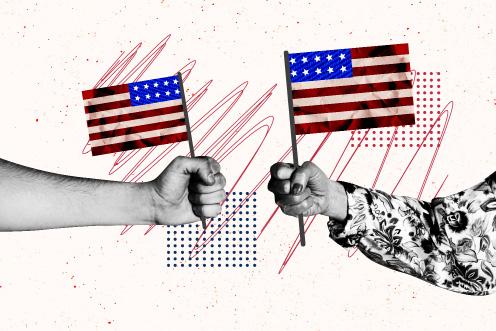
creating an IQ test that simply will not work. As previously explained, in any situation, an IQ test won’t prevent politics from being poisoned, as politics is, to some level, always corrupt. (Perhaps that’s another debate motion for next term’s magazine).
Here's a bold statement: the smartest person on earth may not be a good politician. To be a good politician it takes more than one quality, you must have extraordinary determination, empathy, and wisdom. IQ stands for Intelligence Quotient. Intelligence is defined as ‘the ability to acquire knowledge and skills’. Although the IQ test in this situation may not be the typical one you can find as the first link on Google, it is still inevitably focused on intelligence, not morality, compassion, and willpower. This proves, once again, that an IQ test will not improve the standards of politicians.
The risk of elitism, conflict and discrimination is not worth implementing an IQ test for future political leaders. An IQ test is active discrimination against neurodiverse people and it can easily be misused and manipulated. Sam is arguing for an IQ test, and thus, he is also arguing for shallow political leaders and a lack of diversity in politics. True political progress lies in allowing informed voters to choose their leaders based on their values, not their test results.
- Ellie W
Elon Musk has become a key figure in Donald Trump’s second presidential term, taking charge of the newly established Department of Government Efficiency (DOGE). His mission is to cut waste, modernise government operations, and bring a tech-driven approach to federal management. One of his first major moves was targeting the US Agency for International Development (USAID), arguing that it has become bloated and ineffective. This led to significant disruptions, with some employees losing access to internal systems, as plans to scale back operations were put swiftly into action by Musk. Musk is also expected to focus on the Department of Education and the Pentagon: both areas where Trump believes billions of dollars are being mismanaged. His goal is to streamline government spending and reduce bureaucracy; however, many worry that these drastic cuts could weaken essential services and compromise national security.
Beyond budget cuts, Musk is advocating for a major technological overhaul of federal agencies. He has proposed using artificial intelligence to improve decision-making, implementing blockchain for secure financial transactions (a way of making financial transactions more transparent
and harder to tamper with), and automating processes to eliminate inefficiencies. While some see this as a step forward by creating a more efficient and modern government, cybersecurity experts have raised concerns about the risks of moving too fast with new technologies, particularly in sensitive areas like defence and finance. Reports suggest that some of Musk’s private employees have already been granted access to federal financial systems, sparking fears about conflicts of interest. Former US Treasury officials have warned that moves like these could take power away from elected officials and into the hands of unelected business figures, raising serious concerns about accountability and oversight.
Musk’s growing influence in Trump’s administration has also sparked political debate. While many Republican law makers publicly support his efforts to make the govern ment more efficient, some are privately uneasy about how much control he has been given. His corporate back ground and aggressive lead ership style, which have made him successful in the private sector, do not always align with the slower, more regulat ed nature of government. His role in Trump’s administration represents a broader trend of tech leaders stepping into
politics and shaping policy. Whether this results in a more innovative and streamlined government or a dangerous concentration of power in the hands of billionaires remains to be seen. However, it is hard to see two of the biggest egos in the world, Trump and Musk, always seeing eye to eye; and while their relationship over the next four years will change, the controversy and debate of his position and power in government will likely continue for decades.
- Jack M
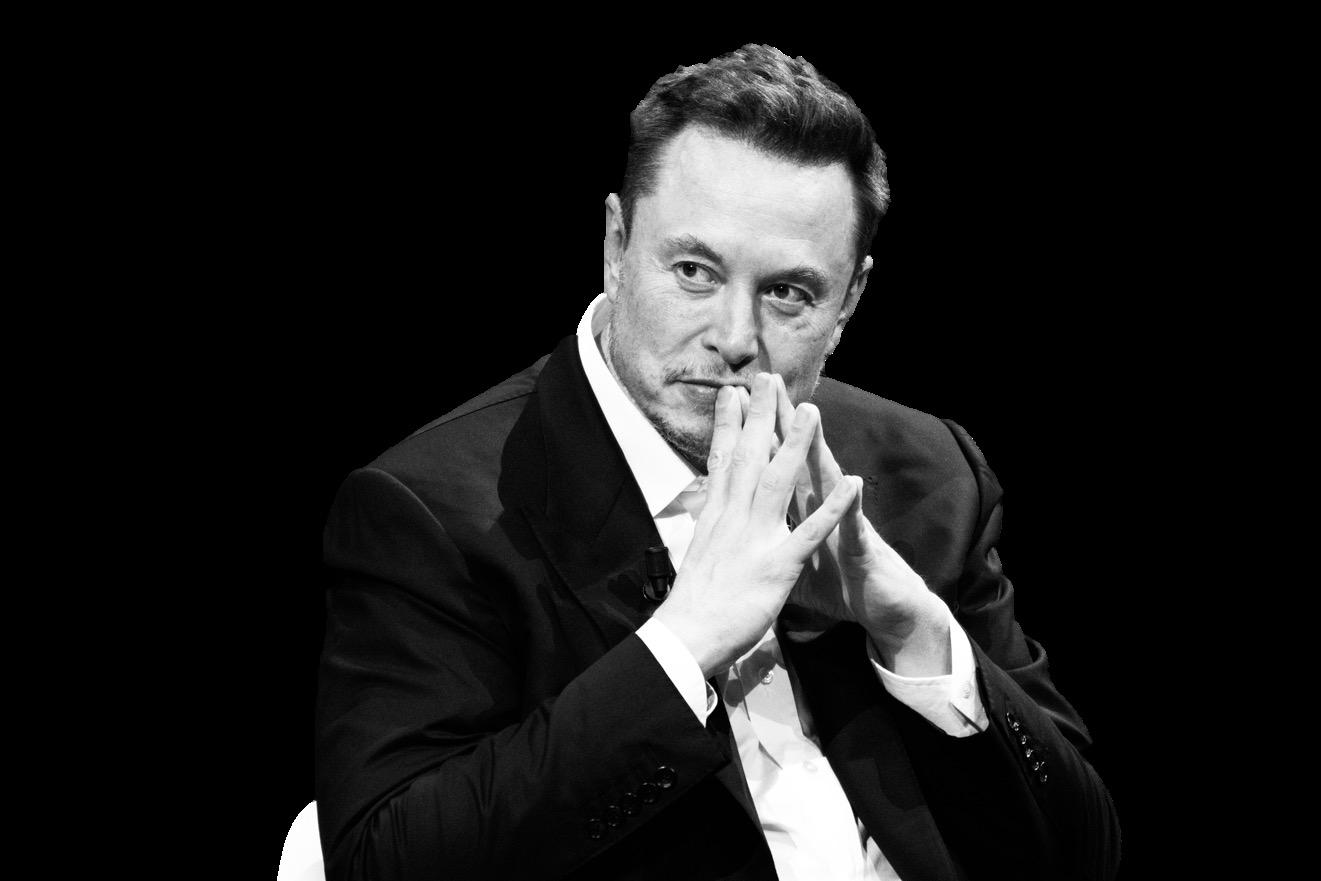
Mary Beard, a famous classicist, claimed that Julius Caesar was “Augustus’ passport to
gression. Julius Caesar was elected as Pontifex Maximus in 63 BC, aged only 37, and
the law. Crassus died in 53 BC, then in 49 BC, civil war broke out between Pompey and Jupower”. However, before exploring Augustus’ propaganda, we must explore the reasoning behind why he is in power and explore his life. It is impossible to understand Augustus without exploring the life of Julius Caesar. Augustus’ adoptive father was Julius Caesar, who was incredibly popular with people because many of his policies helped the poorer members of society. Julius Caesar was born into the Julian Clan. During this time, family lineage was incredibly important. Therefore, as an act of propaganda, Julius Caesar traced his family lineage back to Aneas, Mars, Venus, and Romulus and
Remus. This, therefore, associated the Julian Clan with the beginning of Rome and pro-
became the highest position in office –elected consul in 59 BC. As previously mentioned, Julius Caesar was popular with the people of Rome because he gave lower classes better living conditions. This is clear through him passing the Land distribution bill which gave city dwellers a chance for homes in Italy. However, despite being popular, Julius Caesar became involved in the 1st Triumvirate (Rule of three). This was an informal grouping between himself, Marcus Lucinius Crassus and Pompey. These three men were the most powerful men in Rome. Many people were unhappy about the triumvi-
rate because they believed it was bypassing the traditional routes to power and ignoring
lius Caesar. Julius Caesar marched on Rome, crossed the Rubicon River (this was seen as a point of no return) and killed Pompey. Then Julius Caesar declared himself dictator for life. Many people started to view him as arrogant and behaving too much like a king of Rome despite it being a Republic. This was very unpopular with the people because the Republic was introduced because of the corrupt nature of the Kings before them! Then in 44BC, Julius Caesar was stabbed 23 times - not long after he became dictator for life. But what did this mean for his adopted son, Augustus, who was
Julius Caesar’s rightful heir? This meant Augustus had some work to do to ensure

the fate of the Julian Clan would remain. Augustus was a clever politician and needed to use this to his advantage. Therefore, he asked himself the question – how can I capitalise on the popularity of Julius Caesar? Augustus remembered that until the 1st Triumvirate, Julius Caesar (his adopted father) was very popular. Therefore, what Augustus did, straight after Julius Caesar’s death, was hold a game in his honour, but more significantly, promoted Julius Caesar to the fame of a God (Divi Filius). This, therefore, enabled Augustus to easily capitalize on the popularity of Julius Caesar. In the early years of his life, entering the political scene aged only 18, Augustus’ career had only been formed by the successes of Julius Caesar. Therefore, in order to ensure he gained respect from the people, Augustus had to fulfill the wishes of Casar. This included giving 75 denarii to each of Rome’s poorest people. To be able to do this he had to borrow money, but it was worth it. This made him popular with the urban people and linked him to Julius Caesar. He also (as previously mentioned) held the games after Julius Caesar’s death but in honour of Venus to link to divine lineage. Augustus also named a comet after Julius Caesar. However, Augustus had a rival by the name of Mark Antony. Mark Antony was a close friend
of Julius Caesar and therefore claimed himself to be the rightful heir to the throne. The big difference between Mark Antony and Augustus was their associations with Julius Caesar. A second triumvirate was formed, between Mark Anthony, Augustus, and Lepidus shortly after Lepidus was exiled. The Romans had a very particular belief in Mos Maiorum (Divine Lineage/Good Family Ancestors). Therefore, both Mark Antony and Augustus made attempts to associate themselves with Julius Caesar's best qualities. Despite opposition from Sextus Pompeius (son of Pompey), Augustus finally left himself with one final political opponent – Mark Antony. Between Mark Antony and Augustus there was a sort of ‘propaganda battle’ where they would attempt to associate with the right people. Augustus positioned himself as a benefactor of the people to gain support from them. He also started work on the temple of the deified Julius Caesar in the Roman Forum. Agrippa also oversaw many of the innovations made in Rome to make the message clear to the Roman people that he cares about the Roman people. Augustus also associated himself with the God Apollo within his propaganda. Apollo (God of prophecy, art and music) was known for having good
discipline. This was a stark contrast to Antony’s choice which was Dionysus (God of Wine) who chose relaxing over war. Antony was also involved in an affair with Cleopatra in 36 BC which portrayed him as not being dedicated to the Roman people. Augustus would place Apollo on one side of a coin and himself on the other side. This would associate himself with the Gods and not only portray him as religiously dedicated but also promote his ideology of peace through war. Within Egypt, Antony was viewed as being associated with the right people. However, in Rome, his actions were viewed as decadent and morally wrong. Eventually, Mark Antony was defeated at the battle of Actium in 31BC resulting in his death. Finally, Augustus fought off all opposition and was now the single ruler of Rome. By literature and coins, he promoted himself with the good qualities of Julius Caesar without looking like a dictator. By associating himself with Apollo, Venus, and Aeneas he could promote his divine lineage, and by fulfilling the promises from Julius Caesar he could gain the respect of the people. He then won the
battle of Actium and portrayed himself as a leader who brought ‘peace through war’ to ensure that the Roman people did not think it was a civil war. To conclude, Augustus rising to power was one of the greatest political successes ever. He rose as the adopted son of Julius Caesar, from the Octavii Clan with no political history, joined the Julian Clan and from abso lutely noth ing, formed himself an incredibly strong political career as the first emperor of Rome.
-Reuben C



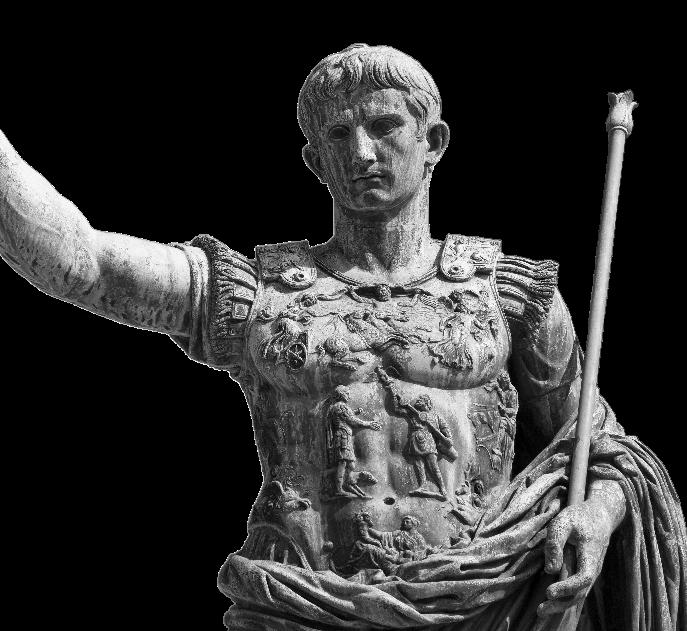
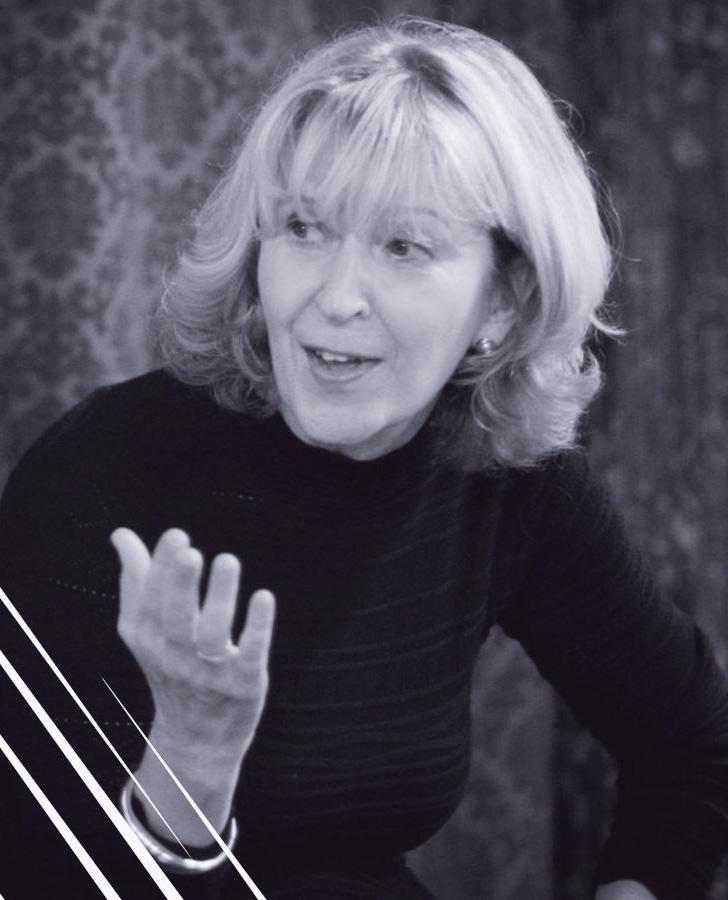
One of the most discussed policies within both our school and the rightwing media, which has been implemented by the Labour government since their election victory in July, has been the introduction of VAT on private schools. In the budget in October, Rachel Reeves described how removing the 20% tax relief on fee-paying schools will help us to “provide the highest quality of support and teaching” to the 94% of children who attend state schools in the United Kingdom. Yet, not a day goes by where the media bashes the policy as a “tax raid” encouraging a mass exodus of pupils from fee-paying schools
Therefore, I would like to use this article to showcase some of the arguments in favour of the policy through my discussion with prominent edu-
cation campaigner Melissa Benn. In 2010, Melissa set up the Local Schools Network, a pro-state school pressure group. She has written numerous books about education reform, including School Wars and Life Lessons.
The issue of education reform has been a longstanding theme within the Benn family. Melissa’s mother Caroline played a leading role in the British comprehensive school movement, and her father, the legendary Tony Benn, controversially removed their four children, including Melissa, from private schools. From them, she “learned the importance of collaboration and people amending your ideas through debating them.” Caroline and Tony's decision to move their children from private schools greatly influenced Melissa's views of education.
In 2015, when Ed Miliband, state-educated at Haverstock Comprehensive in Camden, went up against David Cameron, educated at the £52,000 a year Eton College, the Daily Mail described his school as ‘the Eton for lefties’ reiterating a narrative set up by Cameron at the 2015 Spring Conservative forum of a set of out-of-touch upper-class, North London residing socialists. It seems the media has not changed much from the 1960s in their coverage of Holland Park School, where Melissa attended, which was described as housing the “socialist Labour royalty” at the “comprehensive elite” in a letter in the Times from 1966, following the decision of Labour ministers Roy Jenkins, Tony Crosland, and Melissa’s father to move their children. Melissa tells me that this perception is often
Listen to my full-length conversation with Melissa Benn: search for ‘St John’s Politicised’ on either Spotify or Apple Podcasts.
distant from the truth. In her year, she tells me that “there were lots of students in my year who were the children of the Windrush generation” and the exposure to “people who had a very different background, often with little money” introduced her to a much broader section of society than what she would’ve had if she had gone to a private school.
She notes that she “was thrown into classes with people who were just very different” from her. This, she suggests, is something which is a rarity in private schools where “people are educated away from most people in society which can lead to a lack of understanding of other people’s lives.” Taking this further, she detailed to me how these principles influence the politicians we receive and, as an extension, the policy decisions made. If you were to take a look at Cameron’s cabinets, you would see an inflation in the role of private school alumni compared to the national average. In 2015, half of the new cabinet was privately educated. During this period, harsh austerity measures were pushed by David Cameron (Eton) and George Osborne (St Paul’s). She points out that the environment they were raised in enforced a belief that “they were born to rule and could impose change on society without much understanding of the impact.” Policies, Melissa lists, such as the bedroom tax and benefit cuts, would “never be felt by them” and would rarely impact their constituencies.
By contrast, as Melissa points out, “most of the front bench of the Labour government went to state schools.” Keir Starmer’s cabinet is the most reflective of the British population in history, with only one member who attends Cabinet

having been educated for their secondary education at a private school - Anneliese Dodds, who is the Minister for Women and Equalities. Alongside this, she acknowledges that “they send their children to state schools” and hopes that this will help them recognise the trials and tribulations within the education sector. Melissa explains that she “thinks they will concentrate on the education of the 93%” rather than the 7% who are currently privately educated - creating a change from the final Sunak cabinet, which was composed of 63% private school alumni.
Another issue that the private school environment fosters is what Melissa calls the ‘alchemy of privilege’. The average state-educated pupil will have £8,210 spent on their education each year - the same is paid by pupils at St John’s per term. Meaning that you’re having “three times more on the whole
being spent on you, and you’re probably coming from a much more affluent background”, as Melissa suggests. The disparity between a private school and a state school in the Northeast of England where pupils are not getting their five GCSEs and are simultaneously battling with poverty and crime in the area is perpetuated by this funding gap. “It’s just about money,” explained Melissa.
Keir Starmer noted this disparity between the state and private sector in PMQs in November, where he explained that Rishi Sunak’s alma mater, “Winchester College has a rowing club, a rifle club and extensive art collection - they charge over £45,000 a year in fees” whereas a state school in Southampton, where Sunak is from, will have 4 in 10 pupils fail either maths or English GCSE. Starmer begged the question, is taxpayer money “better spent on rifle ranges in Winchester or driving up standards in Southampton?” Sunak responded with visceral rage, explaining that Starmer was “attacking the hard-working aspiration of millions of people in this country.” This exchange sums up the toxicity found within discussions of this policy. Melissa acknowledges that “there is hardly a week gone by when there isn’t an article in the Times or Telegraph” claiming that “it’s going to put pressure on the state system and bankrupt parents.” She points to research by the Institute for Fiscal Studies, which finds that about £1.5 billion will be raised, which

will go towards funding 6000 more teachers and mental health services in the state sector. Alongside this, Sam Freedman, former SPAD to Michael Gove, points out that state schools, for the most part, will be able to accommodate these pressures. Since 2012, due to falling birth rates, the state school rolls have been falling, with the DoE projecting that between now and 2028, this will drop by 400,000. This creates an excess of state schools’ places, which will be able to accommodate the small proportion which will leave the private
sector. It is this hostility from the press which has made it so difficult to produce substantial public-sector reform, especially within the education sector. Past education secretaries have tried but failed.
Michael Gove, during his tenure in the role, has come the closest of any recent education secretaries since Adonis. He tried to invoke the lessons found within Gramsci’s oeuvre to orchestrate a “Gove revolution”, as Melissa pens it. However, the changing media landscape seems to foster short-ter-
mism rather than long-term reform. She gives the example of Gillian Keegan, who was the final education secretary of the Conservative government, and her “saying the answer is not phones in schools. It has just become trivial.” Rather, to help pass meaningful reform, we “need a government that leads from the front, and it’s probably a 10- or 20-year task, but it could be done. It needs political leadership, and it needs the end of the idea that there is a quick-fix approach to our public services.”
Melissa remains hopeful that change can come if we focus

Charlotte Clee Photographed with Melissa Benn in Queen’s Park, London
on slow reform rather than a trivial sticking plaster approach to politics. She uses the NHS as a model for the potential of the British education system. In her book Life Lessons, Melissa develops the concept of a ‘National Education Service’ conceived by Jeremy Corbyn during his tenure as Labour leader. At the core of it is the principle that
““People are educated away from most people in society which can lead to a lack of understanding of other people’s lives.”
“education would be free” and a coinciding dedication to fostering a system where “intelligence and inclination can flourish” whilst also allowing children to be able to breathe more. It is with a system like this that Melissa believes we can provide “a free and excellent service at the point of delivery”, mirroring the success of Bevan’s NHS.
-
Charlotte C

Listen to my full-length conversations: search for ‘St John’s Politicised’ on either Spotify or Apple Podcasts.
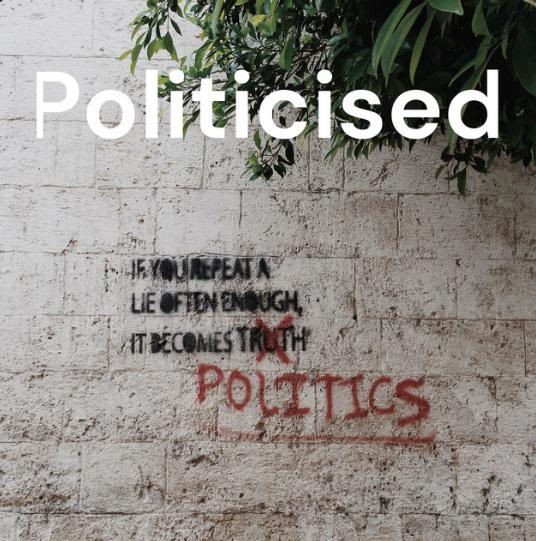
It’s been an honour over the past two years to interview many political figures in Westminster. From chancellors to par ty leaders, the Politicised podcast has captured the range of opinions in politics right now. I’m looking forward to talking politics with both Ed Miliband shi Sunak in the coming months.
Stream recent Politicised podcast episode: Talking politics with IAN HISLOP
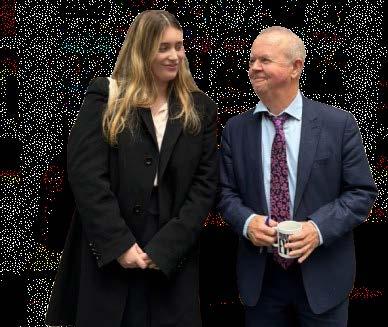
Having the opportunity to do a week of work ex perience with Steve Reed MP was an eye-opening and inspiring experience. Over the course of five days, I gained an in-depth understanding of the responsibilities of an MP and a Cabinet Minister and his team, the challenges faced by constitu ents, and the inner workings of Parliament. Each day brought new learning experiences, from policy research to casework, from visiting Westminster to attending meetings about the future of the con stituency. This experience not only deepened my appreciation for politics but also highlighted the dedication required to represent and serve a com munity effectively. In this article, I want to share a detailed reflection on my week with Steve Reed, offering insight into what goes on behind the scenes in an MP’s office and how every task con tributes to making a difference in people’s lives.
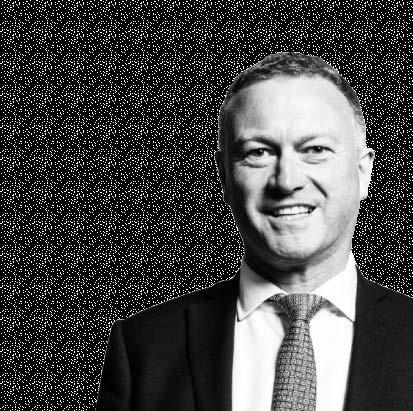
2
3: REPORTING ON STEVE REED’S WORK SINCE NOVEMBER 2024 3
My first day was focused on policy research, a crucial part of an MP’s work. MPs are responsible for understanding and shaping policies that impact their constituents, and thorough research is essential for this process. I was given the task of looking into specific policy areas that Steve Reed had been working on, analysing how these policies affected the local community and the country as a whole. This task required me to read through government reports, parliamentary debates, and news articles to gain a comprehensive understanding of current issues. I learned how MPs use this information to propose changes, and advocate for their communities. Through this research, I saw how policies directly influence people’s lives, from housing and education to healthcare and employment. It made me appreciate the importance of fact-based decision-making in politics and how MPs rely on their teams to stay informed on a vast array of issues.
On the second day, I assisted with constituency and case work which gave me a real insight into how MPs support their constituents. The constituency office is where people turn for help when they face difficulties with government services, such as housing, benefits, or immigration issues. I observed how caseworkers listen to people’s concerns, liaise with government departments, and seek solutions to problems that may otherwise go unresolved. I helped draft responses to constituents, ensuring they received clear and supportive guidance on their concerns. This day was particularly meaningful because I saw firsthand how an MP’s office acts as a bridge between the public and government institutions. It was a reminder that politics isn’t just about debates and policies - it’s also about real people and their struggles. Steve Reed’s team work tirelessly to support individuals, demonstrating the deep level of care and responsibility involved in this role.
My third day was focused on writing a detailed (bi-annual) report summarizing Steve Reed’s political activities since November 2024, including the events he had attended and the initiatives he had launched. This task required me to go through newsletters, press releases, and social media updates to compile an accurate overview of his work. It was fascinating to see how much an MP can achieve in just a few months-from meeting with local organisations and charities to speaking in Parliament about key issues affecting their constituency. The report highlighted how MPs balance national responsibilities with local engagement. Steve Reed had been involved in campaigning for better public services, supporting community projects, and raising awareness about pressing issues. It was inspiring to see the level of commitment involved in representing a community effectively.
One of the most exciting days of my work experience was visiting Westminster. I had the chance to explore both the House of Commons and the House of Lords, witnessing debates and discussions that shape national policies. Being in the heart of British politics was an unforgettable experience. I learned about the history and traditions of Parliament, including the origins of the Cabinet and how decision-making structures have evolved over time. While at Westminster, I also helped create materials for constituents about Steve Reed and his work. This involved designing informative resources that explained what he stands for, his key priorities, and how people can engage with him and his office. Walking through Westminster, surrounded by centuries of political history, made me reflect on the importance of democratic institutions. It was incredible to see MPs in action, debating legislation that affects millions of lives. This experience reinforced my understanding of how Parliament functions and the role of MPs in shaping the country’s future.
The final day of my work experience was particularly special as I got to meet Steve Reed in person. Despite his busy schedule, he took the time to talk to me about his work, his motivations, and the importance of public service. During our discussion, he emphasised the need for politicians to stay connected with their communities, listen to people’s concerns, and work collaboratively to find solutions. His passion for making a difference was evident, and it was inspiring to hear firsthand about the challenges and rewards of being an MP. I also assisted with casework, helping to organise responses to constituents who needed support. Later in the day, I attended meetings about new plans for the constituency where Steve Reed and his team discussed upcoming projects and policy priorities. These meetings showed me the strategic side of politics - how MPs plan initiatives, engage with stakeholders, and push for changes that benefit their communities.
Looking back on my week with Steve Reed, I am incredibly grateful for the opportunity to see how politics operates beyond what is often portrayed in the media. It is easy to assume that an MP’s job is mainly about speeches and debates, but my experience revealed a much deeper and more complex reality. Every day, MPs and their teams work hard to address constituents’ concerns, research policies, and advocate for meaningful change. From handling casework to shaping national discussions, the work they do has a direct impact on people’s lives. This experience has also made me more aware of the importance of political engagement. MPs are there to serve their constituents, but their effectiveness relies on people being informed and involved. Whether through voting, campaigning, or simply staying aware of current issues, everyone has a role to play in shaping their community and country.
My work experience with Steve Reed MP was a fascinating and educational journey into the world of politics. Over five days, I gained insights into policy research, casework, parliamentary processes, and constituency engagement. I witnessed the dedication it takes to be an MP and the hard work that goes on behind the scenes to support individuals and drive positive change. This experience has deepened my interest in politics and public service, and I now have a greater appreciation for the complexities of governance. I am thankful to Steve Reed and his team for giving me the opportunity to learn so much in such a short time. For anyone interested in politics or making a difference in their community, I would highly recommend getting involved in constituency work or seeking similar opportunities. Politics is not just about laws and debates - it is about people, their needs, and the effort required to create a better future for all.
- Janusha G. of Roseberry School

This chapter will cover some of the major conflicts in the world today culture wars over women's rights to the war in Ukraine, including two standout interviews. Ethan Kellet talks with an RAF intelligence officer about the de velopments in the Arabian Peninsula since the deposition of Bashar Al Assad. In a deeply moving interview with Mansoor Adayfi, an ex-Guantanamo Bay prisoner, Natasha Khan examines life after Guantanamo, and the omnipresent feeling of isolation brought about by the US.’ mishandling of ex-detainees that is rarely covered in the media. However, the media has also had its merits in raising global awareness. Since the rise of television, the weight of war has descended with greater and greater force as photographic journalism materi alizes the emotional and visual horrors of conflict beyond that of statistics and borders. But, as Sarah Winklehner explores, is awareness enough without in tervention? The still image holds immense power, and Will Logan looks at the Tate Britain’s exhibition, ‘Photographing the 80s’, a display of immense skill as photographers attempt to capture one of the most tumultuous, rebellious, and divided periods in British history. Division is central to conflict, particularly the cultural divides between Slovakia and Hungary explored by Tara Srihiran-Brown who draws on her personal experience to examine the twin-flames of Slovakian and Hungarian nationalisms and the ‘politics of belonging’, an issue particularly enhanced by the story of Mansoor as delivered by Khan, and I strongly encourage you to read both articles to gain a comprehensive understanding of this persistent struggle to ‘belong’.
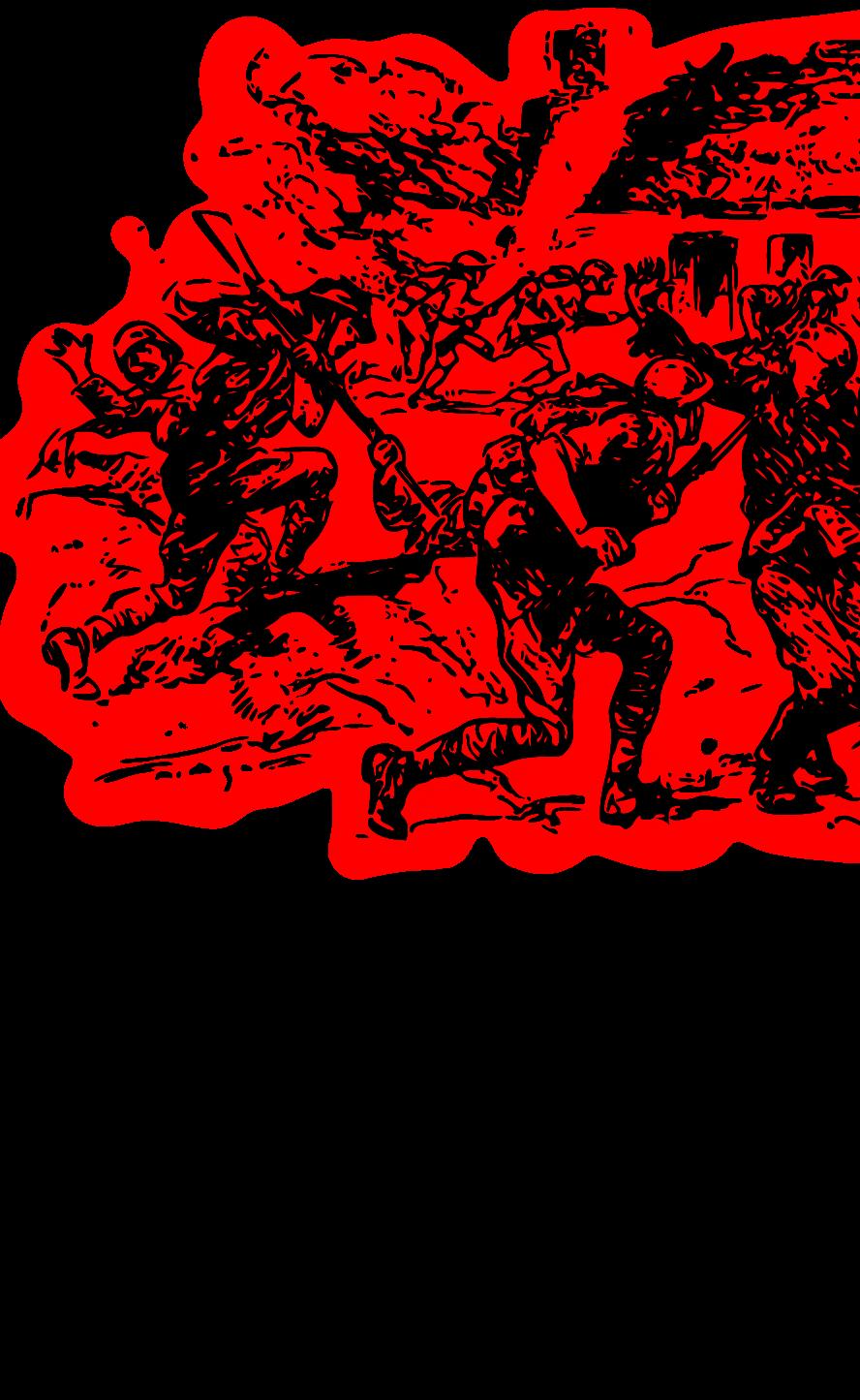
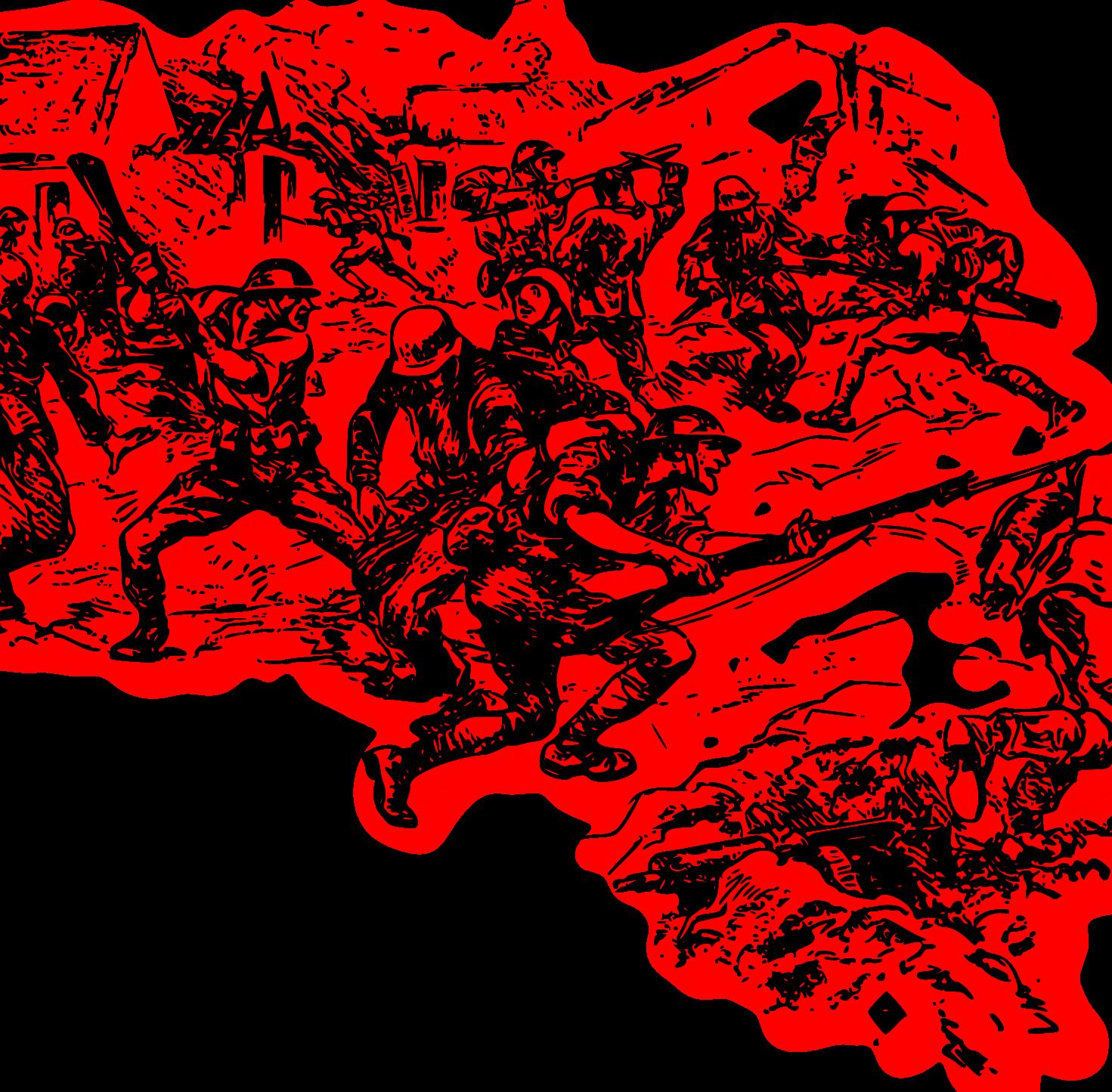
“Never think that war, no matter how necessary, nor how justified, is not a crime.”
- Hemingway
War journalists are tasked with documenting human suffering and the brutal realities of conflict. As such, it is no surprise that this necessary, albeit controversial, coverage invites a persistent ethical question to arise – do war journalists bear some responsibility for the violence they witness by choosing to document rather than intervene?
James Nachtwey, Don McCullin, and Tim Hetherington are names that rise above the rest when the subject of photojournalism and conflict coverage spring up. These men are some of the most prolific conflict photojournalists of the 20th century and have made it their life’s work to capture the horrors of war with staggering visual intensity. By doing so, they play a key role in shaping the public perception of conflict and giving a voice to those that might have otherwise been pushed to the side. However, some critics argue that the passive nature of photojournalism ultimately does more harm than good and contributes to the cycle of violence rather than helping to stop it.
On the other hand, the argument can be made that the work of the photojournalist is imperative in our understanding of global politics and conflict. By capturing and disseminating images of war crimes, they bring international attention to conflicts that might otherwise be ignored. Without their work, the world might not have seen the true horrors of the Vietnam War, the Rwandan Genocide, or the Siege of Aleppo – a grim but candid contrast to the false reassurances of an uncostly victory dished out by government-owned news agencies.
The power of a single photograph can change public opinion, influence political decisions, and drive humanitarian action. Don McCullin, who documented the Biafra and Vietnam wars, said this in defence of his role: “I feel that I have done a job that mattered to society. Maybe it didn’t stop the war, but at least it made people think.”
Ultimately, these men and women do fight against injustice and, in my opinion, to imply otherwise is downright ignorant – one’s preferred tool for fighting inequality simply varies. Some use a gun, some a scalpel, and some a camera.

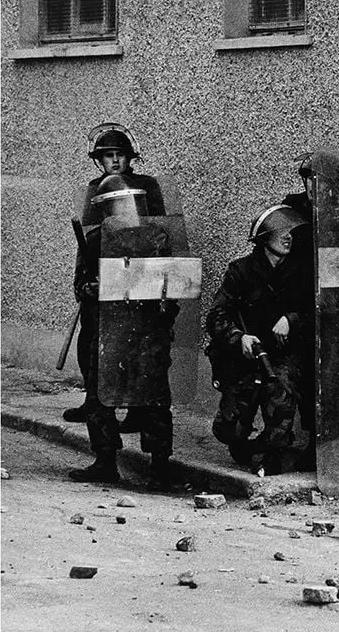

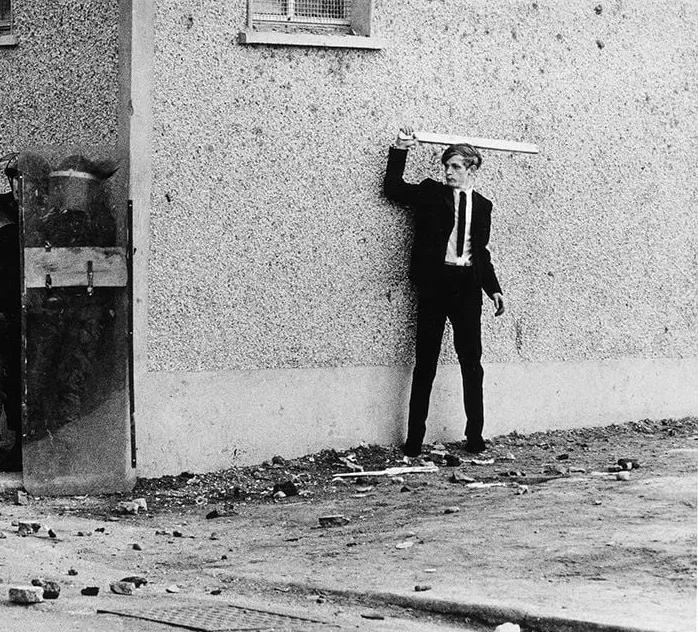
A primary critique of conflict journalists is that their role as ‘neutral observers’ can sometimes feel like complicity. Unlike soldiers, medics, or humanitarian workers who actively put themselves on the front lines and engage in conflict relief, journalists remain on the sidelines, picking through the wreckages after carnage has already swept through, to put it crudely but unreservedly, hiding behind a camera.
One such notable case was Kevin Carter, the photojournalist behind the infamous 1993 image of a starving Sudanese child being stalked by a vulture. While the startlingly brutal image did win the Pulitzer Prize, Carter received tremendous backlash for his perceived apathy, as suggested by the action to take the photo, and he committed suicide only a year later.

- Sarah W
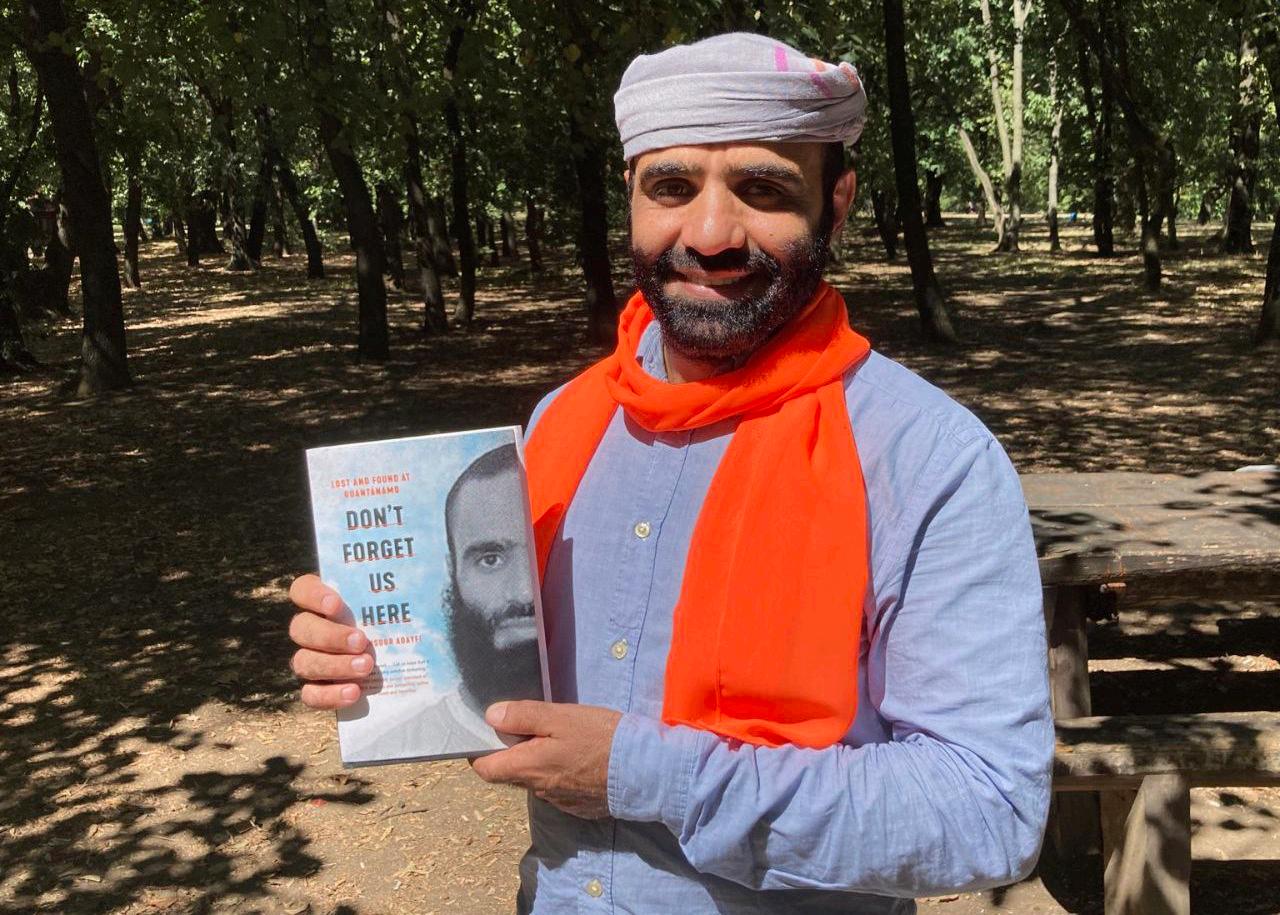
On the 7th of January 2025, 11 detainees from Guantanamo Bay Naval Base (GTMO) were released to be resettled in Oman in the US Department of Defence’s effort to focus on “responsibly reducing the detainee population and ultimately closing" Guantanamo Bay itself. However, is the sole act of releasing these men to foreign countries truly taking full responsibility?
Unfortunately, being released from Guantanamo does not end their sufferings, as the released detainees continue to be followed by the sinister shadow of America’s war on terror for the rest of their lives.
The sad reality is that most of these men are not released back to their home countries and can never go back home to their families. Ravil Mingazov, an ex-detainee, now cannot return home to Russia due to a fear of further torture (due to Russia’s record of torturing ex Guantanamo detainees). Instead, these men are often traded in deals between the USA and host countries such as Oman or Serbia.
Once these men have been sent away, they are no longer the USA’s problem and receive no support whatsoever, despite having been traumatised by years of unjust imprisonment and torture at the hands of the US government.
Ex-detainee, Mansoor Adayfi, was transferred to Serbia following his release from Guantanamo, despite being from Yemen and not speaking a word of Serbian. Mansoor now lives in almost complete social isolation in Belgrade and often faces islamophobia and racism from his local community. His history with Guantanamo Bay has prevented him from being hired – despite never being charged with any offence at GTMO. And like most other prisoners, Mansoor suffers from various physical and mental health issues such as PTSD, which often hinders his day-to-day life. Mansoor is completely socially isolated and has not seen a single member of his family in person since the day he was captured 23 years ago. Heartbreakingly, in conversation with Mansoor, he told me several times that he ‘doesn’t remember what some of his sisters look like’, with a few of his siblings being born after his detainment, meaning he has never met them. Mansoor himself has, in the past, even described his life in Serbia as Guantanamo 2.0 –this is not freedom; it is just placing these men into a larger cage.
So, whilst it should be celebrated that 11 more men have finally been freed from Guantanamo Bay, we must still remember that the fight isn’t over. Guantanamo has left these men broken and take no accountability for it. Dumping these scarred and traumatised ex-detainees in random countries for one’s own gain is NOT taking responsibility and bringing these men to justice, it is just displacing vulnerable people in places which they perhaps aren’t wanted. At surface level, these men have the opportunity to start fresh in these new countries, but it’s pretty hard to start fresh in a place where you are socially isolated, financially unstable, and don’t speak the language. These men deserve real rehabilitation, not displacement, and the reparations for the trauma which Guantanamo Bay has caused is well overdue.
Mansoor is fundraising £1,000 for CAGE, an organization dedicated to empowering communities, promoting justice, and holding governments accountable for human rights violations. Your support can make a real difference in helping continue this important work.
Any contribution, big or small, would be greatly appreciated. Go to raise.cage.ngo to donate.
- Natasha K
On the 8th of December 2024, Bashar Al-Assad fled Syria to Moscow (who, along with Iran, had been a crucial supporter of his regime) after a rebel coalition led by Hayat Tahrir Al-Sham (HTS), captured Damascus and the Assad Regime, which had lasted over 50 years since Hafez Al-Assad took control of Syria in 1971, was finally overthrown. Immediately, the atrocities committed by the regime began to be revealed. As rebel fighters stormed through
the Saydnaya prison, thousands of prisoners were found to be in appalling conditions. A toddler was seen walking out of one of the prison cells as it was opened, a prison that has reportedly hanged around 13,000 inmates since 2011. Another tragic revelation was the discovery of the dead body of famous Syrian activist Mazen Al-Hamada. Al-Hamada was famous for exposing the torture and sexual harassment that he had to endure at the hands of Bashar Al-Assads regime.
While Syrians would undoubtedly be happy to break free of the Assad Regime after over half a century of oppression, the future of the Syria is not likely to be peaceful, and some may argue that the civil war has not stopped, but instead has simply entered a new stage.

Before the fall of the Assad regime, Syria was essentially divided into three different areas. The majority of the country in the southern and western regions was controlled by the Assad regime including the major cities of Damascus and Aleppo. The north-eastern areas of Syria were controlled by a coalition of Syrian minorities (mainly Kurds) called the Rojava with their armed forces going by the name of the Syrian Democratic Forces (SDF). The northern province of Idlib was controlled by Islamists, mainly HTS.
The SDF are a coalition of different militaries with links to the Kurdish militant groups such as Yekîneyên Berxwedana Sengalê (YBS) and the Kurdish Workers Party (PKK). The SDF was a crucial component of the war on the Islamic State in Syria and Iraq (ISIS) and lost significant numbers of people compared to any other country engaged in conflict against ISIS. The SDF have, for a longer time, received military support from the United States and have been seen as a crucial US ally in the region. To this day, they still hold
thousands of ISIS members in prisons across the north of Syria.
The SDF, however, are seen as a threat by Turkey due to its links with the PKK, who Turkey consider a terrorist group. Turkey have regularly gone into Syrian territory to target PKK members and have launched thousands of airstrikes into Syria on a regular basis. This is important to know when understanding the situation that the SDF currently face.
It is well known that Turkey
provided significant aid to HTS in their offensive into Aleppo and Damascus in late November and early December of 2024. This means that there is potential that HTS will start to attack SDF positions within Syria under the instruction of Ankara. This has already started to take place with there being sporadic conflicts between Kurdish fighters and the SDF on the border of SDF territory. At the moment, this conflict has been fairly contained and there has not been significant movement by either side. Turkey’s interests in the region and the aggressive stance that Ankara takes towards any form of Kurdish autonomy there means that conflict could become likely. A group within the HTS-led
coalition called the Syrian National Army (SNA) have already shown aggression towards the coalition and the SNA receive almost direct instructions from Turkey, meaning that there is a high chance of major conflict between the SNA and the SDF.
The recent US election could be hugely consequential within the conflict in Syria. Donald Trump has promised to put ‘America First’ in his foreign policy and his isolationist rhetoric suggests that America will become much less involved in conflict abroad. On the issue of Syria, he tweeted that ‘the United States should have nothing to do with it. This is not our fight…do not get involved’. This could mean that US support for the SDF could end or be significantly
reduced. This would be disastrous for the SDF and would leave them effectively at the mercy of HTS, the SNA and more importantly, Turkey.
If Donald Trump were to abandon the Kurds, it would be a shameful betrayal of a loyal US ally who have heavily sacrificed the lives of their soldiers in support of the US over the last decade. Unfortunately, I do believe that Donald Trump will abandon the SDF and the Kurds because he will not view them as useful anymore, especially given that ISIS are no longer a serious threat. I also doubt that Donald Trump will at all care about the moral question of helping a loyal ally. Only time will tell, but the conflict in Syria is far from over and for the Kurds it could become far more dangerous.
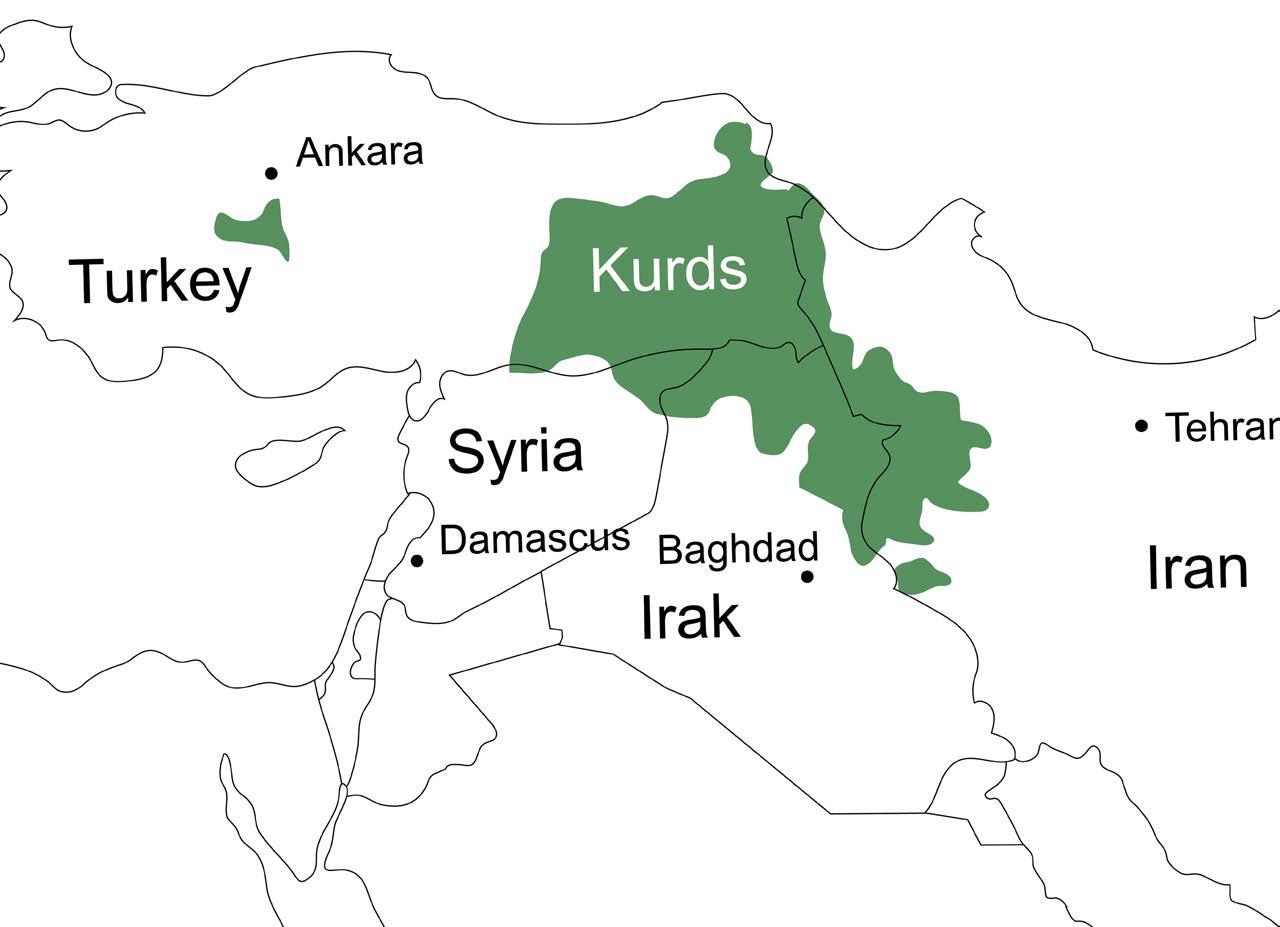
- Lucas D
appearing on Syrian state television to declare their victory over the regime.
December 7th, 2024. Syrian rebel forces, led by the Islamic Jihadist group Hay’at Tahrir al-Sham (HTS), enter the outskirts of Damascus. They face little opposition from pro-government forces who rapidly withdrew before the arrival of the rebels, encountering small pockets of resistance in the Barzeh suburbs. Rumours had spread of President Bashar al-Assad fleeing and seeking asylum in Moscow. Consequently, morale collapsed within his Ba’athist Syrian Army, and desertion had become widespread.
On the morning of December 8th, it became apparent that the rumours were correct – Assad had fled the country, sealing the fate of his regime and ending the 50 years of repression that preceded him. Rebels quickly captured all of Damascus with little resistance, with a group of opposition figures
On the 9th, Mohammed alBashir, head of the quasi-state opposition to Bashar, the Syrian Salvation Government, was appointed as the new prime minister of the Syrian transitional government.
Assad left a power vacuum in his wake, with multiple state and non-state actors fighting to fill it. In the 48 hours following his departure, the IDF would conduct upwards of 500 strikes using air, sea, and land assets. The Israelis' stated intention of the strikes was to prevent the proliferation of terrorism in the region by destroying strategic assets before they could fall into the hands of extremists. The entire Syrian navy was destroyed, along with chemical weapons production facilities and weapons stockpiles, among other targets. Most significantly, the Israelis almost entirely wiped out Syrian air defence, claiming to have destroyed over 80% of all surface-to-air missile systems
in Syria. This has significant strategic implications for the IDF and other regional players – Syrian airspace is now largely uncontested, allowing for combat overflight throughout Syria without kinetic threat, though the transitional government has already voiced its opinions on the matter, saying, "Syria should not be used as a launchpad for attacks against any nation."
Following recent developments in the region, I spoke with Squadron Leader Smith, whose name has been changed for confidentiality, an intelligence officer in the RAF who previously served four flying tours in Afghanistan. He now works in a tri-service operational HQ in the UK as an air liaison officer.

Q: Doctrinally, the Israelis have displayed they are opportunists. Given the airspace above Syria is now uncontested, this opens the possibility of the IAF flying refuelling tankers into Syrian airspace and extending the range of F-35Is well into Iranian airspace. Will we see Israeli strikes into Iran in the near future?
A: I think in the moment itwouldn't make sense. They are already under huge international criticism of their operations within Gaza and Lebanon... some people would argue that they have an inherent right to self-defence and that they were legitimate in what they did, and they were at war and so they applied principles of discrimination and proportionality but were willing to accept civilian casualties. I think a lot of other people would suggest that they didn't respond proportionally and that they were very heavy-handed, as they
A:I think it was like Afghanistan, where there was morale amongst the people and a willingness to support a cause they didn’t really believe in. But the fact they were getting paid to meant that when momentum gained and pushed, actually, no one wanted to be on the losing side. Russia is focusing on Ukraine and didn’t have a lot of spare capacity to support Assad’s regime. Iran was severely weakened and [so were] the proxy networks across Syria, Iran, and Lebanon... I guess any backlash on people opposing the Syrian
often are. I think their opportunity within Syria just made hay while the sun shined. The opportunity was there to remove threats that, to them, were not previously able to be removed in a risk-free scenario given the lack of air defence.
Iran itself would be one step too far. Unless Iran’s nuclear threat suddenly presented itself, I don’t think the Americans would back the Israelis into Iran, and I know that there were pretty heavy cautions [by the Americans] on their retaliatory response to when Iran did attack Israel. I think the

Q:Israelis were restrained in their response to Iran and demonstrated that they had the ability to strike very high-profile air defence targets, well inside Iran as a sort of show of force to say, if you attack us, we will wipe your face off the earth.
I think politically, Israel would lose favour with all the other surrounding countries if it tried to degrade Iran any further. I think if the Houthis flared up again, there likely would be more repercussions [for Iran].
Bashar was seemingly a strongman in Syria. Why was he toppled so rapidly?
regime suddenly disappeared. And I guess that may or may not have been helped by the Israelis predominantly, but... other nations taking out strategic weapons which other militias could potentially use to push back and overthrow the al-Julani regime. But I think there was certainly a concern from the Ministry of Defence that by removing a lot of the weapons, the new national army of Syria would not be able to contest the militias; we were almost making it worse for the situation. A lot of the efforts were focused on getting rid of the chemical weapons facilities safely and getting inspectors in to ensure the removal of chemical weapons and weapons of mass destruction.
Q:The Russian military previously maintained a significant presence in Syria. How will this change?
A:The Russians are removing a lot of their equipment, but I think are trying politically to craft a deal to be able to remain and keep the port of Tartus [and Khmeimim air base]. Which is pretty important for them to use as an air base to reach down to wider Africa.
There is still a limited Russian presence, but I think a lot of their strategic kit has been moved out. But again, I am not currently up to date on the politics of whether they've got permission to stay or not stay. But I would be surprised
Q:again if the regime was keen to, if they want international aid and backers, that would allow the Russians to stay. Because Turkey had become suddenly the biggest power broker in that region where previously they weren’t... everyone is now actually having to lean in and
Is there a concern within the MoD that we could see Syria become a hotbed for global terrorism again?
A: Yeah, there is a strong concern. Some of the prisons up in the north where, during the early parts of Op Shader, which were the counter-Daesh [ISIL] operations with UK Typhoon and MQ-9 Reaper [drone] dropping a lot of weapons and effectively clearing out ISIL from Syria, in support of local proxy forces, which were
Q:Kurdish militia [Peshmerga and SDF], we were supporting who control the northern part of Syria... they run these prisons/ towns that exist. There’s a lot of people in there that are currently imprisoned by the Kurdish militias. Then if the Turks push and fight with the Kurds, then all those people would suddenly be free to go and there would be a lot of people in there who would look to do
The attack in New Orleans over Christmas was the first appearance of IS in a while, or at least an attacker claiming to be motivated by IS. I think in a sense, IS isn’t really something that can be eliminated at source. Ideologically, it's a sort of Pandora’s box; now that it’s out, the people who want to commit those attacks will try and do that anyway, even if there’s no caliphate that exists in Syria anymore.
A:talk to the Turks, so they’ve suddenly become very important. And so, I think there’s obviously a lot of people fighting over trying to prevent Syria from becoming a stronghold for Russia, but also not a stronghold for anyone else. It’s a very strategic country.
expeditionary terrorist attacks.
I think counterterrorism, with the war in Ukraine and threats from China, has gone down in priority for most of the Western world. However, attacks in Germany today (Munich, 18/02/25)... I think there is going to be a return to a focus on counterterrorism and the threats that face Europe.
Yeah, and if we learned anything from Afghanistan, then dropping bombs on people tends not to cure radicalism. So, creating safe, democratic, educated societies is probably the best way - supporting Syria, rather than just trying to kill people at the source.
-
Ethan K


In 2016, Trump said that he would appoint Supreme Court justices who would overturn Roe v. Wade. Roe v. Wade was a landmark case in the United States that greatly helped make abortion legal in 1973; however, this was overturned by the Supreme Court on the 24th of June in 2022. This means that there is no longer a federal right for women to have an abortion in the United States, and that individual states could decide whether they wanted abortion to be legal.
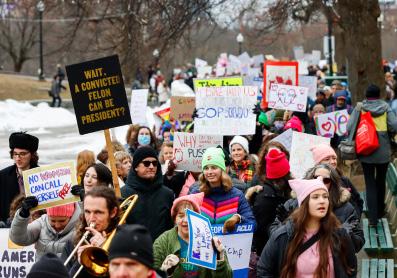
On the 24th of January 2025, Trump signed an executive order to stop federal taxpayer funds from going towards elective abortions in something called the Hyde Amendment. He also stopped all funding of the United Nations Population Fund, which supports elective abortion, and he is the first President in history to attend the March for Life, an anti-abortion rally. At this, he stated, “We’re here for a very simple reason: to defend the right of every child, born and unborn, to fulfil their God-given potential.”

My Body My Rights is Amnesty International’s global campaign to stop the control and criminalisation of sexuality and reproduction. According to their website, 40% of women of childbearing age live in countries where abortion is banned, restricted, or not accessible, and they aim to change this. You can take action by signing Amnesty’s petition on their website to break the barriers to free choice for women and girls in Burkina Faso, where women will currently be denied contraceptives if they are without their husbands. Amnesty also have articles on the overturning of Roe vs Wade, and on human rights in America that are available to read.
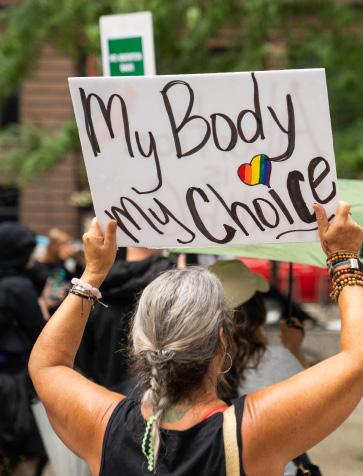
“ “
40%
of women of childbearing age live in countries where abortion is banned
Project 2025 is the wish list for Trump’s second administration, written by the Heritage Foundation. President Trump has tried to distance himself from this 922-page document; however, his administration’s officials wrote large chunks of it. This project directly aims to remove abortion pills, indicating that unborn foetuses should have legal rights, and wants to increase “surveillance” of abortion, as well as removing government support and funding for the procedure.


The



cost of rebuilding Ukraine is today estimated to be about $1 trillion. Houses, dams, and factories all destroyed: the country in ruin. But how have Ukraine attempted to rebuild while at war? The focus so far has been on rebuilding as soon as possible, undertaking significant technological and political reform, and working with foreign allies who are advising on the rebuild.


The first thing Ukraine did was refuse to wait: they started rebuilding and preparing to rebuild straight away. In 2023, Ukraine asked for $14 billion to cover the rebuilding of households and businesses. In March of 2023, the World Bank put the cost of rebuilding at $411 billion, a figure reached before the Kakhovka dam was destroyed. The money is difficult to raise, as two-thirds will have to come from public sources, with private investment difficult to entice in a war zone. It is estimated that in the next decade, it will cost 0.1 percent of the West’s GDP to rebuild Ukraine, with Ursula von der Leyen, head of the European Commission, suggesting the EU will provide 45 percent of the funding in grants and loans until 2027. The Russian invasion of Ukraine pushed Ukraine into speeding up the long-planned switch to the EU electricity market, a process which needed significant market reform on the Ukrainian side. This switch is creating investment opportunities in Ukraine, as it has huge green energy potential. The immediate planning of rebuild, coupled with the creation of investment opportunities, puts Ukraine in good stead for a fast recovery.
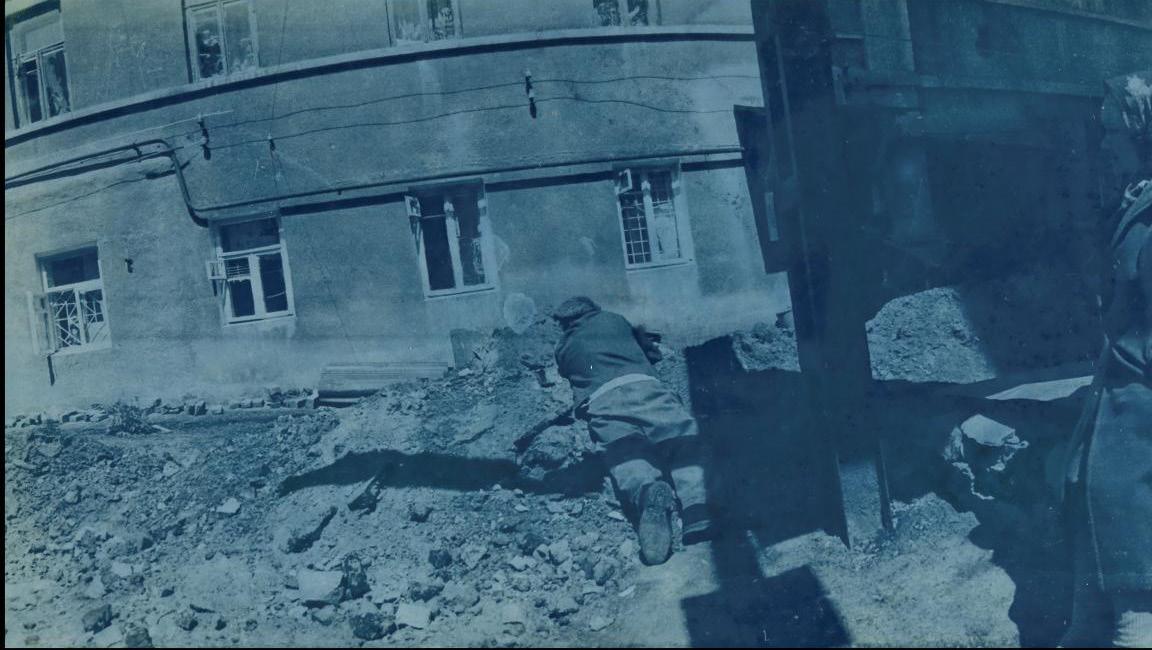
SECONDLY, Ukraine has had to undergo mass reform both politically and in technological fields. Politically, Ukraine has suffered from governmental and judicial corruption, with the country required to complete 2 out of 7 judicial and anti-corruption reforms to open formal negotiations with the EU. President Zelensky replaced the old system of a special court by appointing a council composed in part by retired American and European judges to oversee judicial conduct and reform. As of 2023, in the 3 and a half years the anti-corruption court had been operating, 65 people had been convicted, including 20 judges, MPs, and senior officials. Anti-corruption activist Vitaly Shabunin says, “In the past few years, corruption stopped being a system and became an ailment that could be dealt with.”
In February of 2022, with Russian tanks bearing down on the Ukrainian capital, Mykhailo Fedorov oversaw development and improvement for the app DIIA. The app aims to help citizens have easier access to the government and can do basic tasks like tax returns and filing for business permits; but from the outbreak of war, the app has evolved. It allows citizens to donate to the war effort, struggling businesses can apply for support, and the app even has features to track Russian troop movement. The ability to make civilian interaction with government digital has helped keep people out of government offices and travelling less in dangerous areas. The DIIA app also holds users’ forms of identification, with driving licences, student cards, and passports.
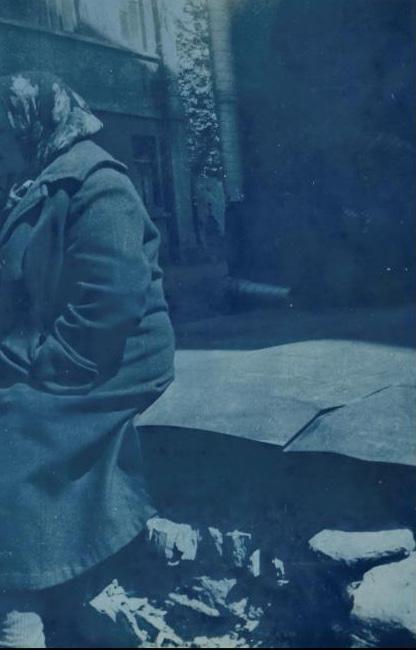
technological reform is widespread, allowing citizens to track movement as well as perform everyday tasks more conveniently. These reforms are vital for the nation’s revival.
In May 2023, Igor Korkhovyi visited and led a team of Ukrainian officials to Kobe, Japan. The mission was simple: “We should learn from your experiences,” as he told the region’s governor. Japan is a country devastated by World War Two and, while rebuilding, faced natural disasters like earthquakes and tsunamis. Japan is a case study of resilience for Ukraine. Three lessons were learnt on the visit. Firstly, that infrastructure is brilliant, but it is useless if communities do not return to use it. Secondly, destruction can be an opportunity: with all the destruction in Ukraine, they have inherited a “blank slate.” Ukrainian official Mr Korsunsky says, “Don’t rebuild the old, build anew.” The third lesson learned from Japan is perhaps the most essential: planning to rebuild after the war is too late, everything must be done in parallel. Kobe also rebuilt railways and water systems after the 1995 tsunami destroyed much of it. The learnings are clear for Ukraine: don’t just rebuild the same, rebuild better, but do it quickly. Ukraine has work to do, but they have mass support: funding from the West, the ability to learn from the past in Japan, and the development of their technological strength with the DIIA app. Ukraine, however, still needs more judicial reform to turn it into a country transparent enough for modern international trade post-war. Overall, the rebuild of Ukraine won’t be a quick one, but over the next decade, a new Ukraine will be formed: one with better infrastructure, technology, and governance than ever before, due to the swift actions taken to rebuild the country.
The use of electronic passports means that, for a country with 6.8 million global refugees, essential post-war reintegration can take place more easily. Ukraine's essential reform of the judiciary has allowed the country to more efficiently deal with the EU and other bodies, putting funding to better use. The - Theo K
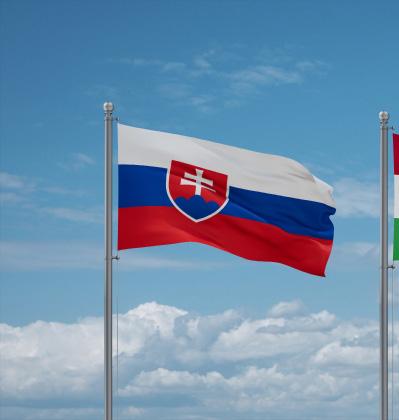
In the town where I am from, that I regard as both Slovak and Hungarian, something unique has been shaped by both countries’ histories and politics. A century after Hungary was divided up, tensions are still evidently lingering, and though borders may not shift anymore, the politics of who belongs and who does not still shape the landscapes of both countries today.
It’s true, Hungary and Slovakia are no strangers to nationalism, but something is changing. Robert Fico’s 2023 return to Prime Minister, under his populist “social democratic, left-wing” party, SMER (Slovenská Sociálna Demokracia), has come back to power on the promise of a strong, sovereign nation –one that questions the EU and turns its back on Ukraine. Similarly, across the Danube and the border, Viktor Orbán has already mastered Fico’s tactics by using Hungarian nationalism as a shield and sword to defend “traditional
values”. For much of my youth, Slovakia had kept its distance from Hungary’s nationalist turn, but now, under Fico, both leaders stand side-by-side in their rejection of the West’s influence.
It is important to note that the nationalism of both countries is not perfectly mirrored. Slovakia’s is a nationalism of defiance, shaped by historical insecurity, which is eager to assert itself. On the other hand, Hungary’s is a nationalism of loss, infatuated with the idea of reclaiming its old empire. So, what potential issues does rising nationalism in Central and Eastern Europe pose?
Something Hungary has long struggled with has been the Treaty of Trianon, which cost Hungary over half of its land in 1920, leaving millions of Hungarians living outside its borders. This trauma has been something that Orbán has capitalized on, by using “illiberal democracy” as means to reclaim nationalist pride. As István Kollai writes in his essay on the Socio-Psychological Aspects of Slovak-Hungarian Relations, “The question of Trianon is a question of the past with an effect on the present.” For the 450,000 ethnic Hungarians living in Slovakia, ians for EU membership is not a consequence of a more democratic political culture,
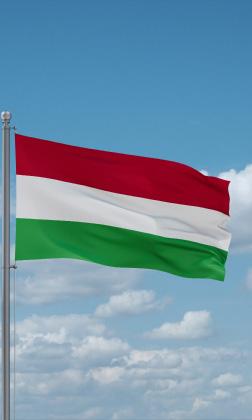
but is related rather to their self-perception as a minority and deeply rooted national sentiment.” This is what makes Fico’s return interesting, as Buzalka and Strážay’s state, many ethnic Hungarians widely support EU membership and integration, even though both Fico and Orbán push nationalist agendas that challenge EU authority. Significantly for the EU, the growing shift towards illiberalism in Central and Eastern Europe poses many challenges, especially regarding the EU’s stance on policies such as migration. Although, Hungary has been more confrontational in this aspect, as seen recently with Orbán being the first EU leader to comment on the election result of Trump’s victory and through his firm support of Trump’s immigration policies. This begs the question of what Trump’s re-election could mean in Eastern Europe?
Though borders may not shift anymore, the politics of who belongs and who does not still shapes the landscapes of both countries today.
Well, simply, Trump’s favor of an isolationist approach gives both Fico and Orbán greater ability to operate without fear of American intervention, especially regarding support for Putin and Russia. If the US reduces funding for Ukraine, this allows Putin to exert further influence across Eastern Europe, and with Hungary’s, and now Slovakia’s pro-Russian stance, this will create further divides within the EU. Therefore, the most important thing to understand is that at the core of this resurgence of nationalism, which will undoubtedly pose various future problems for EU and international relations, is a politics of belonging. Orbán’s ideology and policy plays directly into the Hungarian heart, which has a certain desperation to regain a lost empire since the Treaty of Trianon, whereas Fico aims to strengthen the belief in Slovak unity and uses that as a weapon against the West. As both countries’ nationalisms seek to redefine belonging more rigidly, the future of democracy and stability in the region depends on whether Orbán and Fico continue with politics built upon ideas of division. This reinforces the problems that the rhetoric of ‘othering’ and exclusion have created worldwide. We see it in Trump’s re-election, we see it in the conflict in the Middle East, and we see it the dark past of the World Wars. Ultimately, nationalism rising in Slovakia and Hungary is a reminder for us all that we are all globally united by the human need to ‘belong’, and that we should all strive to remember that belonging is the foundation upon which nationalism should be formed from, not policies that stem from historical grudges and generational anger.
- Tara S-B
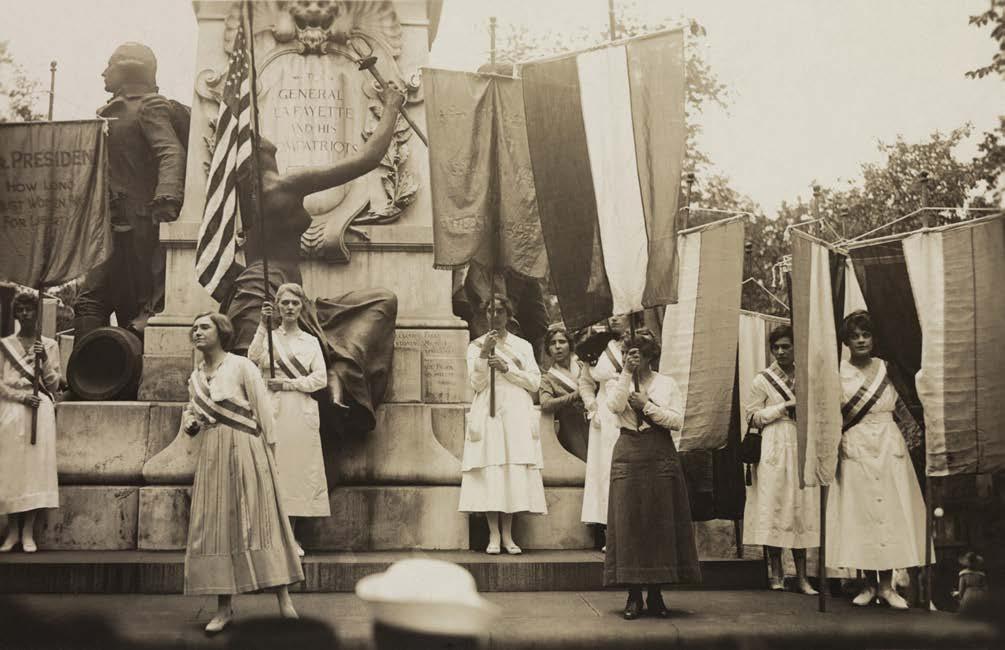
‘The argument of the pane of glass is the most valuable argument in modern politics’ Mrs Emmeline Pankhurst, 16 February 1911.
Formed in 1903, the Women’s Social and Political Union revolutionised the world of women in politics through its militant approach and indefatigable campaigning. The organisation, in both scale and exertion, was unparalleled at the time, with the violent yet brave protests led by Emmeline Pankhurst and her daughters. Their slightly unconventional methods used to ‘wake the nation
up’ through ‘deeds not words’ resulted in over a thousand women being sent to prison where many of them went on hunger strike. The Suffragettes also used window campaigns in order to make a political statement, as they sought to prove that the government cared more about broken windows than the life of a woman.
This was succeeding the Black Friday demonstration, 18th November 1910, in which over 300 women marched to Parliament, where they were greeted with police violence and sexual as-
sault. The movement, though striking and impactful, did create a high level of controversy and some argue that it damaged the cause and led to high levels of alienation from other women. For example, in the 1912 debate on women’s suffrage, every MP who spoke against women’s suffrage gave Suffragette violence as one of the reasons for their opinion. Though it is highly likely they used this as a defence for their own sexist, chauvinistic views, it does pose the question in regard to the use of violence for a cause.
However controversial the movement was, the campaigning style of the WSPU did expedite the way for women to assume more prominent roles in society during WW1. These roles were later recognised in 1918 with the passing of the Representative of the People Act which granted the vote to a limited number of women above the age of 30. Despite this, the battle for gender equality in politics continues to be an uphill battle as women’s interests remain under-represented by politicians in a magnitude of areas. In particular, women of colour have been subjected to marginalisation as the focus of the movement persistently remained to be white, middle class, married women. The failed recognition of those from ethnic backgrounds, who tirelessly fought and advocated for the suffragette movement such as Frances Ellen Watkins Harper, is a reflection of the continued lack of attention towards women of colour in modern politics.
When considering the Suffragette movement today, it is imperative to recognise the intransient and tenacious actions of these women and men as their unwavering efforts remain relevant to current politics. Thanks to the likes of Edith Garrud and other brave campaigners, women now have a space in politics and an input into our modern-day society, which is constantly evolving. As of July 2024, 40% of members in the house of commons were women, an all time high. Though, here in Britain the opportunities for women are slowly increasing, globally this is not necessarily the case. Progress towards a fair society for all continues to be

something we must strive for, an incentive demonstrated by the Suffragettes, whose astounding determination continues to inspire many as we aim to achieve gender parity in modern political life.

“
We are here, not because we are law-breakers; we are here in our efforts to become law-makers.
- Emmeline Pankhurst
“
- Tia A


The 1980s was a transformative era, with conservatism on the rise. Ronald Reagan was the President of the US, and unforgettably, Margaret Thatcher was the Prime Minister of the UK – both figures defined by their right-wing stances. With defining movements such as the 1984 Miners’ Strikes and the AIDS epidemic in 1982, the 80s was certainly a heated time in British political history. This exhibition at the Tate Britain managed to encapsulate the socio-political climate of the time perfectly, with nearly 350 images from over 70 photographers, showing a broad range of perspectives and responses to the intense socio-economic shifts around them.
The exhibition opens with a room dedicated to protest. Marches opposing Section 28 legislation (a bill which was nothing short of violently homophobic), unemployment, and the Grunwick strike were some of the main focuses of this section, with many organisational posters and magazines accompanying the incredible photography. The exhibition then leads into industry-critical photographs, focusing on the dehumanisation of workers, with a series of photographs on the miners’ strikes, a defining moment of the 80s which, without a doubt, shaped the public’s view on Margaret Thatcher from then on. Once again, the focus of the photography shifts to more conceptual art. One prominent example was Sunil Gupta’s 1988 work which focuses on inter-racial couples, overlayed with poetry and images from the Section 28 protests. Near the end, it celebrates a variety of subcultures typically associated with the
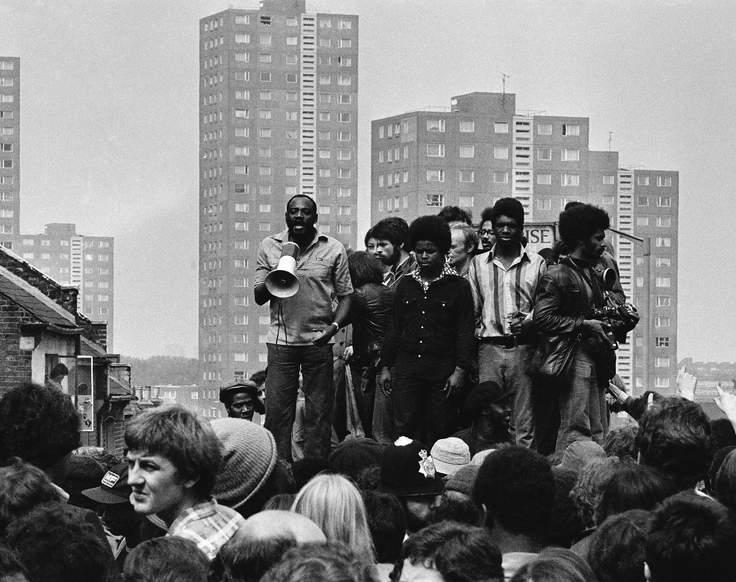
1980s. Overall, the flow of the exhibition worked extremely well. It depicts the chaotic and slightly frightening political landscape of the time, with the occasional photo of Margaret Thatcher riddled throughout as a reminder of her influence. The exhibition also takes one on a journey of colour, the first few rooms solely being black and white images, with colour slowly introduced along the way.
I loved Tish Murtha’s borderline-apocalyptic Youth Unemployment series from 1981, depicting young people looking lost amongst urban decay. Melanie Friend’s image of two confused Japanese tourists, who
have somehow stumbled into the 1990 poll tax riots while holding their HMV bags was also a key point of interest for me. It also showed variety, with the intimate and tender Ajamu X’s “Black Bodyscapes”, commenting on the sexualisation of Black British men and women, whilst exploring his multifaceted gender identity, how his queerness and blackness interact with each other. David Hoffman also depicts a similar romantic and intimate atmosphere by photographing intimate moments between gay men surrounded by police at the Section 28 protests.

“Co-curator Jasmine Chohan defines her intent with the exhibition in an interview:
It is a reminder that the 1980s were a time of highly contested opinion, and a challenge to anyone who tries to catalogue the many strands of emergent photographic practices in that formative decade. The 1980s were all about upending narratives.
I definitely saw this throughout the

exhibition; the subversion of societal norms was a clear theme along the way. So much of what happened in the 80s is still reverberating today, and it is clear that the intent was to try and compile key moments of progress, whilst also drawing connections to the current political climate. This exhibition was certainly
overwhelming with a lot to absorb. Nevertheless, I would, without a doubt, recommend it to anyone remotely interested. Over 300 photos created an informative experience depicting the anger, resistance, and turmoil that the people of Britain experienced throughout the 1980s. Even with the dry, technical wall texts lacking any nuance, the high standard of the photography presented certainly shone through. It was a beautiful exhibition, with an even more beautiful meaning, composed of a plethora of incredible photographers with a diverse range of motivations and techniques.
It is my strong conviction that every corner of life is political in some way, and, as Pericles said many years ago, “Just because you do not take an interest in politics doesn't mean politics won't take an interest in you.” On the sports pitch, controversy has sparked over Saudi Arabia’s hosting of the 2034 Football World Cup with their inadequate human rights protections. In the Arts, Nate Gurr explains the allegory of hit musical Wicked for fascist regimes. Annabel Rainbow takes a wider perspective, looking at the influence of cancel culture, specifically whether it can be viewed as positive for society. But does it really work? In music, Kanye West’s cancellable controversy begs the central question of whether art can be separated from artist, and indeed whether ‘cancelling’ him will be enough to end his rampant spread of toxicity across social media. This term, our writers have certainly been making the most of Leatherhead’s geographical closeness to London, with Leah Wingfield bringing you a comprehensive guide to the West End and Anna Cuckow, an in-depth and superbly written review of David Tennant’s Macbeth, starring alongside Cush Jumbo as Lady Macbeth at the DONMAR Warehouse. Issie Appadoo and Cian Smith hold the fort for the Lower School in this chapter, delivering impressive pieces about the road ahead for Labour’s NHS and the ability of fame to pervade the pursuit of justice.

A full critic’s review on the ‘must see’ award winning Shakespeare play, which was renewed after its successful run time in the Donmar Warehouse.
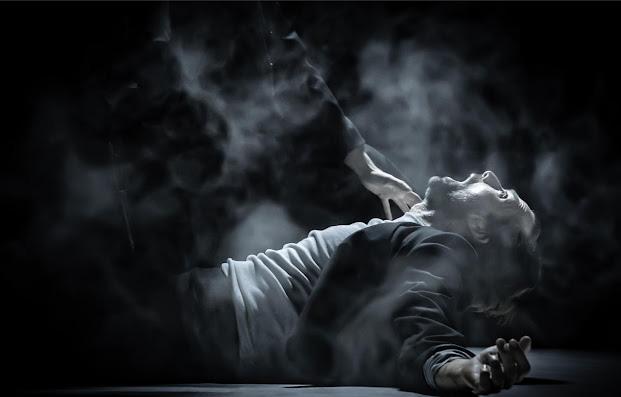
As a lover of both thespianism and Shakespeare, I can safely say that I was not misled when it came to David Tennant’s performance. In my eyes, he truly is the best Macbeth. His performance gifted the audience both realism and nuance – beautifully aided by the audio headsets provided for each seat, enabling him to explore subtlety without the fear of a lack of projection. These headsets were worn for the entirety of the show, and provided a 360-degree audio experience, enabling the cast and crew to enhance the eerie nature of the classic Scottish play. From the way that he engaged with the audience to his facial expressions, I found that the character he’d
built resonated deeply with me, leading me to believe that he was Macbeth. However, it was not the facial expression that I marvelled at; his eyes told a story which was effortlessly mirrored in his movements and stage space. While both of these actions were approached by Tennant in an extremely controlled and meticulous way, they were extremely effective and carried the story. Shakespearian language can, at times, be very confusing to an amateur viewer like myself, but Tennant ensured that the language did not stand in the way of his storytelling. I understood everything that he was conveying, and even though I have seen the play many times before, I found that Ten-
nant offered me a fresh perspective and a new, deeper understanding of both the character and the play.
This variation of the famous play was also a complete embracing of Scottish culture; the actors engaged in traditional dances while in established attire and conversing in Scottish accents. The nationalities of the actors varied, but majority were of Scottish backround and heritage, including Tennant. Not only did this aid the immersivity of the performance, but it also made a bold statement about how productions of Macbeth should be. The culture within other performances can be completely erased for the sake of modernising the play or adapting it as a director, both of which arguably shouldn’t be done under the genius of Shakespeare. What stood out to me was that director, Max Webster, created a piece of true Scottish theatre; he was jaded of the modern notions of adaptation and change, when the masterful tragedy grants you everything that you could ever need to create a jewelled performance. He refused to let the culture element of Macbeth be erased over time by creating something truly magnificent and a tribute to Scottish culture.
While Tennant shone, I did not think that his female counterpart, Cush Jumbo, did. While she exerted a powerful stage

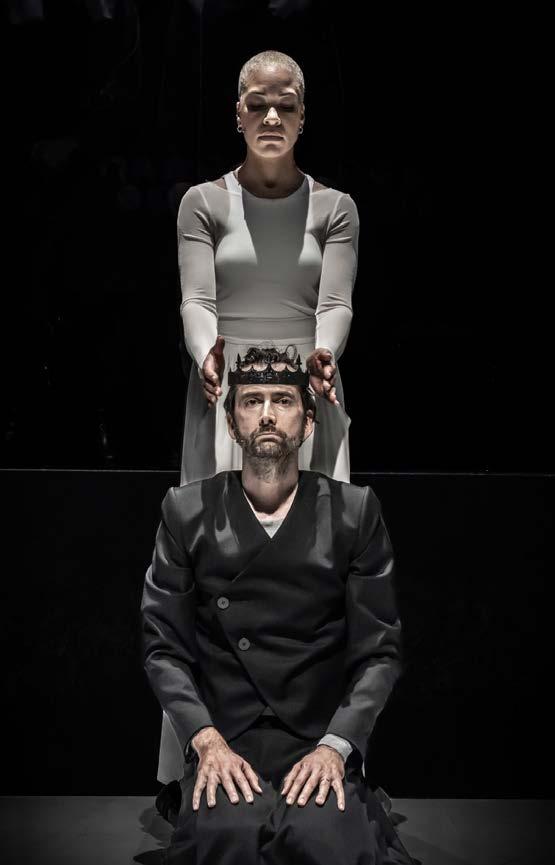
presence and possessed an electrifying chemistry with Tennant, for me her resonance was not achieved. I did not believe that she was Lady Macbeth, nor did I adore her soliloquies. Perhaps I am too harsh on Jumbo as Lady Macbeth is a character so close to my heart, but I felt that she had morphed Lady Macbeth into a shape and person that suited her, playing her with confidence but lacking a challenge. An actor who allows themselves to become completely immersed with a character while on stage is arguably always the best. As humans, we do not have one emotion at a singular moment, nor do we anticipate times full of anger, tears, or fear; to act those emotions is to pretend, but to feel them is to be human. Lady Macbeth, whether you perceive her to be a feminist icon or a wicked figure, is human, and I yearned to witness a moment of human emotion within Jumbo’s performance.
- Anna C
A classic movie brought to life on stage by a big ensemble with flashy dance numbers, lots of pink, and an apex predator. This has just won the award for Best New Musical at the What’s On Stage awards. The story is about a girl who moves from Kenya to America and starts high school at North Shore High. She makes some friends and tries to mess with the popular clique which then makes her the Queen Bee. But will she stay Queen Bee? Or will she realise that real friends mean more than fake ones? Well, you will have to watch the show to find out. This musical shows the highs and lows of secondary school life where everyone has their own insecurities and embarrassing moments. What’s not to love? Mean Girls is a well-known story, with loads of dancing, and lots of pink!
London isn’t far from Leatherhead, so why not watch stories in the form of singing and dancing? Some musicals can be happy and uplifting with big dance numbers and flashing lights, whereas others will teach you a lesson with sad songs and close harmonies. What’s not to love? You get to sit back and relax for a few hours, eat an ice cream, and watch an unforgettable show!

Another classic movie-turnedinto-a-show with hits by ABBA, bright colours, glitter, and a load of drama. When Sophie, Donna’s daughter, plans her wedding, she wants to find out who her dad is, so she reads Donna’s diary to find three possible fathers. Once Donna finds
out that 3 past relationships are back on the island, things get heated, and secrets get exposed.
This jukebox musical has big dance numbers, floral dresses, and comedic scenes. The cast are full of energy, and they never stop dancing but be prepared and warm your voice up as at the end you get to sing along with all the best ABBA songs and have a little dance!
This is a fun, classic show that has returned to the West End with slight alterations and has just been awarded Best Regional Production at the What’s On Stage awards. It is such a fun musical with extraordinary kids dancing and singing their hearts out. Fagin is unbelievably funny with jokes and magic for the whole family.
The Artful Dodger is very energetic and can always put a smile on your face; Oliver will make you fall in love with this fun youthful character. The performer of Nancy is incredibly talented and will make you cry during her emotive song, ‘As Long as He Needs Me’. Bill will make the hairs on your arm stand up, the villain of the show. The dance is slick and precise, and the music will stick in your head all the way home. This is a great show for aspiring actors to watch as it’s always inspiring to see people one’s own age up on a West End stage.
This is a more contemporary musical with gorgeous harmonies sung by The Spirits and a very sad story that will certainly make you cry. Melanie La Barrie who plays Hermes has also recently won the What’s On Stage award for Best Supporting Performer in a musical. The story is set in a bar when a young girl comes in and catches the eye of Orpheus. The girl gets sent to hell and Orpheus walks around the back to try and save her. The end is very dramatic, leaving the audience speechless. It is slightly different from your usual, uplift-

- Leah W
ing, Matilda or Mamma Mia, but you never know where the style of musical theatre is going next and maybe this is the start of more contemporary musicals on the West End. You wouldn’t want to miss that, would you?
This is another contemporary musical with an emotional story. It follows the story of a man, Benjamin Button, who ages backwards - so is an old man at the start of his life and dies as a young boy. You will fall in love with him as he tries to figure out the world, his life, and his meaning. The instruments are all played onstage with slick choreography so the cast can act, sing, dance, and play music all at the same time. It is a once in a lifetime show and you wouldn’t want to miss out. The musical takes you through the highs and lows of Benjamin’s life with love interests and haters; and you never know - actor-musicians might just take over the musical world!

On the surface, Wicked is a fantastic musical spin-off of The Wizard of Oz, telling the untold story of Elphaba, the Wicked Witch of the West.
However, it’s not just a musical. Beneath its catchy, iconic songs and beautiful cinematography lies a sharp political allegory, exploring themes of propaganda, scapegoating, and moral complicity, holding up a mirror to real-world power structures, making it as relevant today as ever. The musical Wicked made its stage debut in 2003 as a spin off to L. Frank Baum’s The Wonderful Wizard of Oz, showcasing the past of Glinda the Good and the Wicked Witch of the West. On a surface level, Wicked showcases a developing friendship between two opposites:

Glinda, a representation of what it’s like growing up with privilege, and Elphaba, who represents marginalisation from birth.
Ariana Grande and Cynthia Erivo portray the roles of Elphaba and Glinda perfectly. Through press interviews we have seen how meaningful the characters were to them and the deep emotional connection between the actors. Their dynamic on and off-screen chemistry is beautiful, yet it also highlights the political divide at the heart of Wicked: privilege versus resistance, conformity versus rebellion. Their casting is a crucial element in bringing this dichotomy to the forefront, reinforcing the themes of discrimination and privilege. Elphaba, who is marginalized because of her green skin, is played by Cynthia Erivo, a black woman, reflecting real-world racial discrimination. Meanwhile, Glinda, the symbol of privilege, is played by Ariana Grande, a white woman. The casting reinforces the characters’ connotations and raises more discussions about the roles that race, and privilege play in our society.
In the upfront politics in Wicked, The Wizard is like any other fascist dictator. He is unable to control the weakening economy in Oz so chooses the animals as a scapegoat. The Wizard uses propaganda to imply that animals shouldn’t be liked, therefore removing their animal rights, including their right to speak. This narrative mirrors real-world political tactics where leaders unite populations by vilifying a common enemy, often targeting marginalized communities to consolidate power In Wicked, Dr Dillamond, a goat, is the Wizard’s literal scapegoat and is dismissed from his job for being an animal. A clear link can be drawn between Dr Dillamond and the Jewish community, who were targeted by Adolf Hitler in Nazi Germany. Many viewers interpret the flying monkeys as representation of the medical experiments used on Jewish people by Nazi doctors during the Holocaust.

Elphaba is the symbol of the unfortunate reality of being a part of a marginalised group. Unlike Glinda, wealthy and blonde, perceived as perfect by her peers, Elphaba is faced with marginalisa-
tion from birth because of the green colour of her skin. This causes her to feel out of place in society but also makes her more compassionate towards other minority groups like the animals.
However, not all will follow in an oppressive system. Elphaba first journeys to the Wizard to fix the mistreatment of the animals, but as soon as she questions the Wizard’s involvements, he immediately paints her as an enemy of the state, thus showing his love for her as conditional. When Elphaba escapes the oppressive regime, Madam Morrible addresses the state, saying, “Elphaba’s green skin is but a manifestation of her twisted nature”. This is an example of the rhetoric fascist leaders use to vilify minorities.
Whilst Wicked is set in a fairytale land, the political issues draw almost identical parallels to modern day problems. When Wicked was first performed in 2003, some viewed it as a critique of the invasion of Iraq under George W. Bush, happening only months before its release. The political allegories in Wicked feel especially relevant today, given the recent election. At a time

when Trump has just taken office, the timing of the movie is perfect. Indeed, Trump’s presidential campaign was not shy from using fascist tactics. Trump’s presidency threatens to further rescind women’s rights, LGBTQ+ rights, and has repeatedly used immigrants as scapegoats, encouraging the belief that they are to blame for American hardships like the cost-of-living and unemployment crises. This directly reflects what happens in Wicked.
When watching this movie, I was moved. Not just by the incredible acting and beautiful singing, but by the story behind it,
because underneath the fantasy storyline, it reflects society today. In recent interviews, the director of Wicked, Jon M. Chu speaks about the parallels between Trump and the Wizard, sarcastically describing, “A charismatic leader who gaslights a community that this woman is wicked just because she’s standing up for a marginalized group of people in the society: how could that be political?” The themes explored in Wicked resonate deeply with today’s social issues, reflecting the challenges of navigating a world where prejudice and oppression can dictate who you are. This seminal film serves as a mirror to society, and a perfectly timed call for justice and change.
- Nate G
The NHS treat over 590 million patients each year. They help with everything from a small cold or rash to life-saving surgeries. But what is the NHS really like? What are its struggles and what is the government doing to help? In this article I will look at the people behind the hospitals and explore what’s really going on. I will explore the struggles that front line workers face and assess what is being done to tackle them as well as what needs to be improved. I will look at these issues through three main lenses: funding, staffing, and backlog.
So, let’s start by looking at what the problems are…
The majority of the NHS’ funding comes from the government through general taxation and national insurance contributions, with only one percent of the total funding coming from the Department of Health and Social Care. Yearly, the NHS receives funding within the region of £153 billion, however it has been estimated that £179 billion is required to cover all essential running costs. Therefore, besides from upholding the NHS, a far greater amount of funding is required to advance it.
Research shows that there are over 6.28 million people who are on the waiting list in the NHS, with patients waiting for months or years to be seen. What’s more, 6,959 patients are waiting for organ transplants and an additional 3,822 have been temporarily suspended from the transplant waiting list, leading to 439 patient deaths in 2023.

FTE (Full Time Employee) vacancies have hit an all-time high of 121,000 across the service – an increase of 23% since 2009. Key factors for staff shortages include burnout, low pay, struggles to find the desired worklife balance, and a consistent feeling of letting patients down. According to the King’s Fund blog, the high staff turnover rate in the NHS has significantly contributed to approximately 4,000 deaths per year. In addition, 7 in 10 NHS workers in patient-facing roles say staff shortages regularly affect the quality of care provided.



Having outlined these key issues, let’s turn to see how the government proposes to resolve them…





As part of the 2024 autumn budget, the government have committed to distribute an extra £25.7 billion to the NHS over 2024-25, the biggest increase in funding since 2010 (excluding the COVID-19 years). This increase is designed to completely cover the anticipated essential running costs. Additionally, in July 2024, the government allocated an extra £1.8 billion of funding for the NHS, demonstrating their support for our most valued public service.
A new ‘Long-Term Workforce’ plan was introduced in 2021/22 and will run through to 2036/37. The plan aims to increase the number of NHS staff through an expansion in recruitment alongside a retention improvement programme, an apprenticeship scheme, and the reform of medical education and training. The main aims of the plan are:
1. Train more staff to increase the number of doctors, nurses and midwives
2. Retain the NHS workforce by allowing greater flexibility and career progression
3. Improve culture, leadership, wellbeing, equality, and inclusion within the workforce
4. To reform the way they work so that healthcare professionals can focus on newer technological innovations leading to greater attention to patient care
This should help lower the NHS’ turnover rates and encourage younger doctors and nurses or workers of a minority background to continue to work in the NHS.
The aforementioned additional funding will also ensure that the NHS is able to deliver 40,000 extra elective appointments (ones that have been previously planned such as knee or hip replacements) sooner. The extra appointments will help to reduce wait times for patients and ensure that all patients are seen within a maximum eight weeks from referral. The government has also struck an agreement on 6th January 2025 with the private sector (any providers of NHS services that are not foundation trusts or NHS trusts) to end the hospital waiting list backlog. As mentioned above, this is anticipated to reduce all waiting times to no longer than eight weeks – if achieved, this will be a huge improvement as the wait times are currently up to a staggering 18 months. If waiting times are decreased, patients would be seen sooner and many lives would be saved.
- Issie A
When looking particularly to the USA under Donald Trump’s presidency, we see new and constant collisions between the influenced and the influencer. The manipulated and the manipulator. We see the individuals that find themselves in an everincreasingly complex battle of personality, the internal battles between the incentives control over the individual and the individuals very longing for the incentive. The front cover explores some of these encounters. The battle over incentives shown in the ruins of a war zone underline Trump’s involvement in the Russia - Ukraine conflict as well as his ambitions in the Gaza region. While the national animal sits hawkishly atop the US dollar as to present the evidently capatalistic drive at the heart of modern US politics.
The head’s multifacited symbolism is significant. Not only does it strongly confirm Donald Trump as a figurehead for the re-sculpting of the geopolitical landscape but it also allows insight into who and what dictates each strike of the chisel.
Characters on the cover such as Elon Musk and Vladimir Putin sit comfortably within Trump’s decision making process.
Planes exit the composition. A reflection on the tragic plane crash that occured in January this year that Donald Trump, while surrounded by the featured individuals, shamelessly claimed to be the fault of
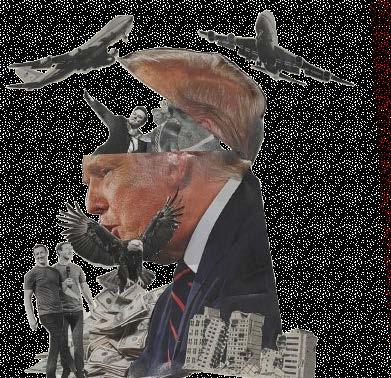
equality, diversity, inclusion and accessibility policy. As Trump becomes increasingly more imperial in his actions, the planes are also to represent in territory what they do in visual, compositional expansion on the cover.
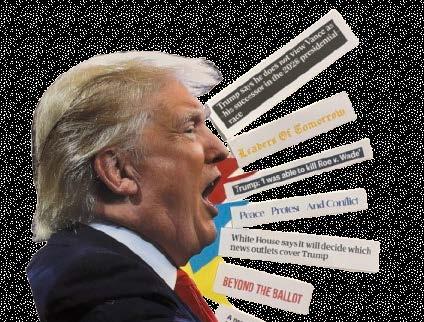
On the back cover, Donald Trump is shown with his head closed, less pensive and in greater control. Here, he is the mouthpiece. Previously portrayed to be absorbing the voices of those who wish to influence him, he now dictates the narrative.
Lastly, I’d like to thank our Editor-in-Chief, Bella Coombes, whose inspiringly creative and determined approach helped shape what I hope is a magazine you all truly enjoy.
- Freddie Hayles
Kanye West, known as ‘Ye’, is one of the most influential rappers of all time, commonly known for his work on ‘Graduation’ which just recently reached 7 billion streams. He uses a fusion of different genres of music like indie rock, progressive rap, and gospel. West started his music career after moving to New York City, working for Roc-A-Fella Records and helped with the production on Jay-Z’s album, ‘Blueprint’. At first, he
struggled with making his own recordings due to his working-class background, but finally released his debut solo album, ‘The College Dropout’ in 2004. Due to the tracks’ clever wordplay, which was a mix of humour, faith, and political awareness, it sparked the start of his distinctive career in the music industry.
West, as an artist, has had the greatest impact on modern fashion due to his niche
aesthetic, differing from other rappers. Using his brand ‘eezy’, he re-invented shoe culture, collaborating with big brands such as Adidas. Yeezy generated over $1.7 billion in annual revenue for Adidas at its peak; however, in October 2022, Adidas announced its removal in the collaboration with West with immediate effect after the rapper made antisemitic remarks on social media.
Over the years, West’s
nnegative media presence continues to increasingly ravage social media platforms. In February 2025, West exclaimed that he is a ‘Nazi’ and ‘Love[s] Hitler’. This disgusting antisemitic conduct on social media highlights West’s feelings of invincibility and immense God complex. West stated in 2024, “…anyone who wants to disagree, I’m the God of me. You can’t tell me who I am.” This egotistical behaviour exemplifies Kanye’s ‘bulletproof’ ideology, thinking he is untouchable and can do whatever he pleases, whenever he wants. This is furthered when he stated, “I won, I tweeted pretty much everything I felt like for 12 hours and still have my Twitter account… Thank you for participating in this social exper-
Yiment.” After people found out that Kanye’s discriminatory and socially degrading tweets were part of an experimental joke, it caused complete outrage, sparking conversations about whether Kanye’s well-being is intact or if he is just being an arrogant, self-seeking man-child. On the 7th February, a user on X posted about “Kanye’s attention-seeking meltdown,” labelling it as “deranged behaviour,” to which Elon Musk replied, “indeed.”
Many questions have been asked as to why Kanye acts in such a manner. West had previously been labelled as bipolar, saying it had been his ‘superpower’ in making his album Ye. However, West has recently stated he was misdiagnosed with bipolar disorder and has now been diagnosed
Eas autistic, saying that the diagnosis helped him better understand some of his behavioural patterns. West says that when people tell him to do something, he does the complete opposite, remarking, “When fans tell me to do my album a certain way, I’ll do it the opposite way,” alluding to one of his famous tracks, Can’t Tell Me Nothing. Nevertheless, autism is not a mental illness and is certainly not an excuse for Kanye’s unjustifiable behaviour.
In 2020, Kim Kardashian, West’s then-wife, acknowledged the difficulty of managing his mental health, stating, “Those that understand mental illness or even compulsive behaviour know that the family is powerless unless the member is a minor.” Similarly, West’s old manager Don C remarked, “It’s so difficult for me, as I love that guy (Kanye) because this is like a grown man – you
can’t take control of his bank account, you can’t control what he’s saying on Twitter.” West said on a podcast with Justin Laboy that he no longer takes medication for his mental health, as autism is not an illness. “I haven’t taken the medication since I found out that bipolar wasn’t the right diagnosis. It’s finding stuff that doesn’t block the creativity; obviously, that’s what I bring to the world. It is worth the ramp-up, as long as y’all get the creativity.”

In a political sense, Kanye aligns his views with Trump, emerging through three themes: economic nationalism, evangelical Christianity,

and liberal flourishes. West has been a long-time critic of the Forever Wars, which he has been rapping about for over a decade. In his song Power, West argues: “Been a don, praying for the families lost in the storm / Bring our troops back from Iraq, keep our troops out of Iran.” This ideology clearly aligns with Trump, as they both share a non-interventionist attitude towards foreign policy. West also shares Trump’s views on the increasing threat of China and the importance of re-shoring jobs to America. When West met with the President in 2018, he said: “We have to bring jobs into America because our
best export is entertainment and ideas, but when we make everything in China and not in America, then we’re cheating on our country.” West’s expression of his faith has long featured in his music, with his strong connection with gospel music, making songs such as Use This Gospel and Jesus Is Lord. However, his support of Trump is also somewhat ambivalent. West firmly believes in updating
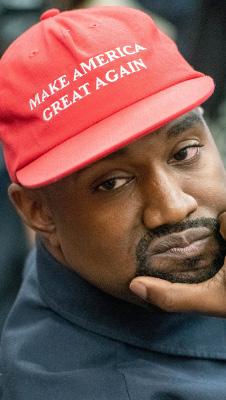
the school curriculum, tweeting that “teachers should be paid more and that textbooks should cost less.” He also showed recent support for the Black Lives Matter movement, donating $2 million to George Floyd’s daughter for a college education. West holds a conventional Republican view on guns, abortion, and religion; however, he deviates from conservative orthodoxy on issues like education,

criminal justice reform, and support for BLM.
Kanye West recently legally changed his name to ‘Ye’, exclaiming his choice to do this before releasing his album Ye in 2018. He
spoke with Big Boy in an interview, explaining his reason for the name change, stating, “I believe 'ye' is the most commonly used word in the Bible, and in the Bible, it means 'you.' So, I'm you, I'm us, it's us.” ‘Ye’ is a way for West to reflect his good, bad, and confused self. For West, the name is a way for him to break away from the idea that he is "the only one" (which is what "Kanye" means) and a way to reflect the idea that he is "us". ‘Ye’ is a way for West to reflect the idea that he is ‘just Ye’ without his ego.
To summarise, West is a man with immense creativity and talent, who uses his background and personality to shape his life and music. He is an inspirational character in the music industry, using his talents to successfully start his own brand whilst still creating quality music. West supposedly does have autism, and therefore there is an explanation for some of his irregular behaviour patterns. However, this is an explanation, not an excuse, and he has misused his right to free speech, being racist, homophobic, antisemitic, and sexist, using his vast media presence to portray his backwards

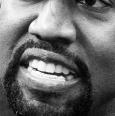

ideas. This expression of socially unacceptable views transfers to West’s younger fan base who idolise him, who in turn, come to believe that such behaviour is acceptable and excusable. Therefore, they will speak these ideas to others as their ‘idol’ is doing, shaping their thinking without fully understanding West’s inappropriate views. Going forward, West must look to restricting his ideas online, even if he thinks they are true, as the broadcasting of his thoughts hurts others and particularly younger generations who support him, on a global front.
- Sam R

‘It’s very clear that politics should stay out of football and football should stay out of politics’ – FIFA President Gianni Infantino in 2018 (Hyde, 2019)
But World Cup football history appears to disagree. In December 2024, FIFA confirmed that Saudi Arabia will host the 2034 World Cup. Amnesty International’s Head of Labour Rights and Sport, Steve Cockburn, commented, “Fifa’s reckless decision to award the 2034 World Cup to Saudi Arabia without ensuring that adequate human rights protections are in place will put many lives at risk.”
Gianni Infantino defended the decision, “We are of course aware of critics and fears. I fully trust our hosts to address all open points and I fully expect them to deliver tournaments that meet the world’s expectations. This is what we expect and look forward to: social improvements, positive human rights impacts. The world will be watching and it is positive that the unique spotlight of the World Cup is on what can and should be improved, so that this can be addressed effectively and we can have real and lasting change.”
communist nations with USA vs China, and England vs Germany after two twentieth century World Wars.
It is the political landscape and cultural values of the host nation which has triggered a realm of responses. World Cup football is no stranger to political controversy, and major rivalries have had considerable historical significance. We’ve seen coloniser vs colonised nations with Portugal vs Brazil, democratic capitalist vs authoritarian
It is perhaps money rather than politics that has afforded Saudi Arabia the golden World Cup ticket. Saudi has a massive financial influence on global sport, with its sovereign wealth fund (also called the Public Investment Fund (PIF)) reportedly allocating £5bn in the past three years. It is illegal to be in a gay relationship in Saudi Arabia, and women are severely restricted in what they are allowed to do. The term ‘sportswashing’, where sport is used to promote international relations and allay negative reactions, has been applied to Saudi Arabia, but it is perhaps a diversion tactic to dim the
spotlight on the country’s human rights record.

The voting process for the 2034 World Cup hosts has been reported as something of a circus. Barnay Roney called the event,” A vote without a vote: the Saudi World Cup is an act of violence and disdain,” going on to describe how a show of hands, some CGI fireworks, and thumbs up peppered the extraordinary event in Riyadh. (The Guardian, 11 December 2024). Roner concludes, “Football is out there making death happen because this is politically and financially expedient. Choose mass executions,
torture, enforced disappearance, male guardianship and imprisoning homosexuals. Sport has always been complicit and corrupted. The world has always been brutal. FIFA has now given us this in its most extreme form, wrapped up in a laughable pretence of governance and good intentions. And in the end everyone involved is complicit, every note of online acclaim another rap of the coffin lid, from Infantino himself to our own home football associations.”
There are facts to underpin one’s concerns about Saudi Arabia. 16,000 migrant deaths since 2016, for example. But is FIFA the real problem? Years of corruption surrounding the format, membership, and behaviour have formed the backbone of the beautiful game. Most likely, as many international football teams as are able to qualify, will take part. Boy-
cotting is unlikely to be a significant political weapon. And so the beautiful game will, against a not-so-beautiful political backdrop, play to the final whistle.
Football is now all about money. There are problems with the values within the game. This is sad because football is the most beautiful game. - Johan Cruyff
- Freddie W
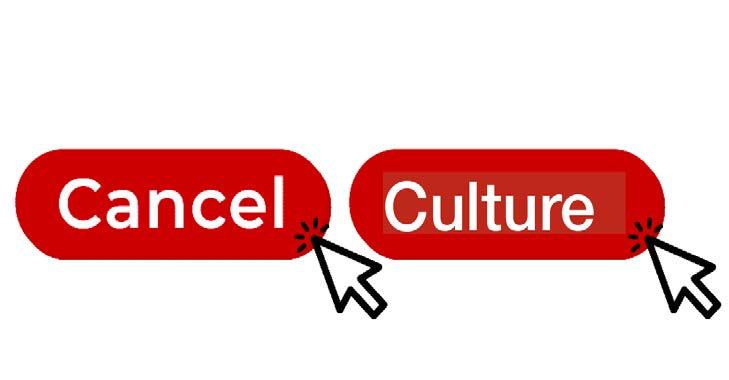
When we think of cancel culture, we think of influencers, celebrities, and politicians, hate tweets and videos, which then emerge into perhaps awkward, insincere apologies. However, cancel culture has existed for thousands of years, and even if more discreet at times, has been a part of society for longer than one might think.
Traces of cancel culture can be seen as early as ancient Greece and Rome, with the exiling and public disgracing of public figures. In Ancient Rome, there are numerous examples, such as Cicero in March 58 BCE, whose exile was written into law for attempting to overthrow the government. A slightly more recent historical example can be seen in Puritan society during the 17th century, with the practice of public humiliation involving techniques such as scarlet letters - marking someone with a symbol of scandal and disgrace. Puritans had a strong belief in moral accountability. We can also see other examples during the 20th century, such as the Hollywood Ten during the McCarthy era in America, fuelled by a climate of suspicion and fear around the spread of communism. Cancel culture used for the betterment of society can be seen in the civil rights movement, such as the Montgomery bus boycott
during the 1950s when buses were avoided to promote equal rights for African Americans.
Although cancel culture has been used for many years, it has never been as prevalent as it is today. Moving cancel culture online has allowed thousands more people to perpetuate it, causing its popularity to skyrocket. The entertainment industry has been a key target of cancel culture, with celebrities and actors being "cancelled" for engaging in problematic behaviour. When the public gets hold of this information, these figures often become disgraced. Similarly, in the political landscape, public figures have faced widespread condemnation. For example, incidents like Partygate, when key members of the Tory party attended gatherings during lockdown. YouTubers and online creators are also frequently on the receiving end of public scrutiny, such as James Charles and
others, who, as a result, lost brand deals, followers, and even access to their platforms.
Granted, much of this is ultimately positive for society - holding people with power or influence accountable. The growing age of social media makes this even easier, giving the public access to important information about the people they might admire, unveiling their true character. It can also help bring governmental or legal attention to particular events, ensuring those liable are punished fairly and sensibly.
However, cancel culture also epitomises mob mentality: people coming together to spread hate, which can be distorted and twisted from individual to individual, eventually ending up in a tangled web of lies. This culture has moved beyond celebrities, trickling down to smaller scales, particularly in online spaces, fuelling the spread of cyberbullying, especially among younger generations.
Cancel culture has psychological effects on both ends. For those who participate, it can cause a dopamine-driven reward cycle, intensified by a sense of moral superiority. This can lead to a phenomenon called groupthink, where people lose the ability to think and make judgements for themselves. As a result, people may join in with the hate, even without all the facts, chasing the feeling of righteousness. The effects

on the recipient are often more obvious - it can lead to depression, anxiety, and extreme stress. In more extreme cases, it has even led people to take their own lives, such as the case of Caroline Flack, a public figure from Love Island, who was relentlessly harassed by the press and online communities, leading to her tragic death.
With technology advancing every day, we can only speculate on what the online landscape of cancel culture could look like in ten years. The rapid development of AI, particularly deepfake technology, poses serious risks, with misinformation becoming increasingly convincing, with fabricated images and voice recordings potentially providing false evidence against individuals.
This raises the question: Is cancel culture a positive or negative thing?
It is difficult to devise a straightforward answer. On the one hand, it promotes accountability and helps ensure wrongdoers face consequences. This is crucial for societal function, allowing free speech and expression to flour-
ish. On the other hand, it can spiral into harmful territory, creating climates of censorship, psychological harm, and the spread of falsehoods, resulting in the destruction of possibly innocent lives.
To conclude, while cancel culture can promote free speech, accountability, and fair punishment, it can also perpetuate censorship and fear, with people becoming anxious to voice their opinions out of concern for the potential repercussions. So, is cancel culture inherently good or bad? Perhaps the idea, in theory, is positive, but it has been distorted by an increasingly technology-driven society. As we continue to evolve, we must remain conscious of the consequences of our actions, ensuring we don’t participate in Groupthink for the sake of a false moral high ground, but instead engage critically, only when credible evidence and just cause are present. As a modern society, we should stay mindful of the negative effects of online dogpiling and make sure we reflect on our own behaviour, rather than solely focusing on the alleged mistakes of others.
- Annabel R
In a world where the lines between justice, wealth and power are often obscured, the pursuit of justice can become a privilege reserved for the fortunate few. Fame, fortune or political power can put people in positions where they can avoid punishment while others can’t. Whether it is a politician, billionaire or a popular celebrity. All around us the elites are often able to play by different rules. Begging the question: when justice warps for the elite, is it truly justice at all?
This diluted persecution was evident in the lack of accountability that various members of the Israeli government, most notably Benjamin Netanyahu, since the Israeli onslaught on Gaza that began in October 2023. On the 7th of October Hamas launched an attack on Israel causing the deaths of 1,205 Israelis. This led to an
Israeli government and Hamas have publicly condemned the ICC's decision to pursue these warrants.
The International Criminal Court (ICC) faces increasing pressure as the humanitarian crisis in Gaza worsens, with mounting casualties and extensive destruction. Despite this, the ICC has not yet issued a formal decision on arrest warrants Netanyahu and Gallant, who face accusations of war crimes and crimes against humanity. The ICC and the idea of international law and justice came about in the aftermath of World War II. Today, the ICC's ability to act decisively on high-profile cases is seen as a test of its credibility. Given the extensive documentation of alleged war crimes and crimes against humanity, a delay in issuing warrants could undermine the court’s legitimacy. If the ICC hesitates to ad-
Israeli invasion of Gaza. At the time of writing roughly 40,000 Gazans have been killed, and Netanyahu and Hamas have ignored calls for a ceasefire. On May 20, the International Criminal Court (ICC) Chief Prosecutor Karim Khan applied for arrest warrants for Israeli Prime Minister Benjamin Netanyahu, Defence Minister Yoav Gallant, and Hamas leader Yahya Sinwar. Both the
dress these accusations with urgency, some fear it could signal a crisis in the institution’s commitment to international justice, potentially diminishing its authority and relevance on the global stage. If the ICC, the very body established to hold the powerful accountable for atrocities, hesitates now, what message does this send about the future of international justice?
Fame and wealth similarly complicate the judicial process. Sean John Combs, also known as P Diddy, is one of the most influential hip-hop producers and artists of the last three decades and has a net worth of $1billion. He has been accused of charges relating to sex trafficking, drug offences and firearms offences, for which there are roughly 120 victims aged 9-38. Combs has plead not guilty to these charges.
In November 2019, Sean Combs’ former girlfriend Casandra Ventura filed a lawsuit accusing him of physical and sexual abuse during their relationship. Initially, Sean Comb’s pleaded innocent claiming that he had never mistreated her. Two days later a video was released proving Ventura’s accusations to be true although Combs still avoided jail time. Further accusations have since come to light, including several reports of Combs sexually assaulting women and then coercing them into silence. Several reports have stated that Combs hosted parties, attended by many high-profile individuals, where substance abuse was rife, and individuals were sexually exploited. These claims paint a troubling picture of unchecked power, where the influence of fame may have prevented the victims from speaking out, voicing their pain and suffering and seeking justice for their oppression. One of the most concerning things about this case is how long it has taken for Combs to face justice with this like-
ly being down to his wealth, fame and influence that has allowed him to get away with these heinous acts for so long. This situation raises the crucial question of how an individual so prominently in the public eye can get away with these crimes.
Fame isn’t the only advantage celebrities are utilising, however. Late owner of Harrods, Fulham FC and the Ritz Hotel Paris, Muhammad Al Fayed was an Egyptian billionaire. Before his death in 2023 there had been no allegations towards Mohammad Al Fayed. His immense wealth allowed him to silence victims, and many would have been unable or unwilling to speak out due to his wealth and influence. After his death, however, 421 victims of sexual abuse spoke out from all over the world. This scale of abuse, spanning across multiple continents and involving countless victims, paints a picture of industrial-level exploitation. The injustice lies in the fact that, since he had already passed away, there was no opportunity for legal accountability. This left his victims without the closure they deserve, highlighting a systemic failure where powerful individuals can escape justice because of their influence. The cases mentioned so far highlight the imbalance of justice within our society. However, there are instances where celebrities do not escape punishment for their crimes, and in some cases, their fame and stature only exacerbate the severity of their persecution. One such case is that of
Harvey Weinstein. Harvey Weinstein owned the world-renowned production company Miramax and was responsible for producing many iconic films. Despite his professional success, Weinstein's personal life was marred by horrific allegations. He was accused of 11 counts of rape, sexual assault, and sexual battery. In 2020, he was found guilty of three counts of rape and sentenced to 23 years in prison.
During his trial, Weinstein was relentlessly pursued by the media with his portrayal in the news potentially influencing his trial. On December 19, 2022, four of the initial charges against him were dropped, but whether this is connected to potential misjudgement in his case remains unclear. The media’s portrayal of Weinstein, while effective in bringing attention to his crimes, raises an important question: Can the public outrage sparked by media coverage distort justice? Despite these concerns, Weinstein’s case had some positive outcomes. The trial and its surrounding media frenzy brought critical issues of rape and sexual assault to the forefront, helping to break the silence that many victims of sexual violence had endured for years. The public conversation sparked by Weinstein’s conviction led to the creation of the #MeToo movement, where millions of women worldwide took to social media to share their personal experiences with harassment and abuse. The hashtag served as a powerful tool for survivors,
creating a platform for them to speak out and support one another. #MeToo became a global phenomenon and was a pivotal moment for the global fight against sexual abuse. Ultimately, the Weinstein case represents both the dark side of celebrity power and the potential for transformation in the fight for justice. While some may argue that media coverage influences outcomes, it is undeniable that the spotlight on Weinstein gave a voice to victims everywhere, catalysing a global conversation about abuse, power, and accountability.
In examining the cases of powerful figures like Netanyahu, P. Diddy, Weinstein, and Mohamed Al-Fayed, we see how influence and wealth can often obstruct the course of justice. Their ability to delay proceedings, shift public narratives, and even issue veiled threats exposes the truth that justice can be vulnerable to wealth and power. Media scrutiny, while essential in bringing transparency, also becomes a double-edged sword. It stirs public opinion, often creating a “trial by media” effect that can cloud facts and pre-empt verdicts before due process is completed. True justice will come when all are held to power no matter their fame, wealth or political power.
- Cian S
Editor-In-Chief: Bella C
Graphic Design: Freddie H
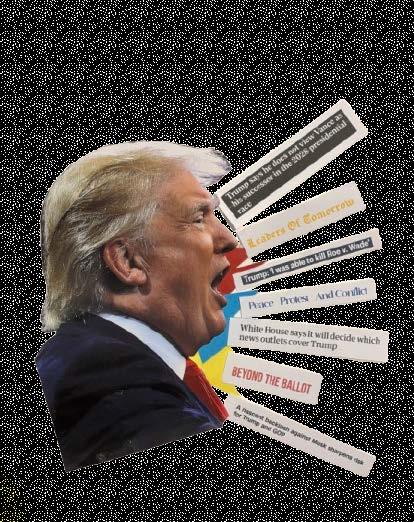
The Eagle - Spring 2025